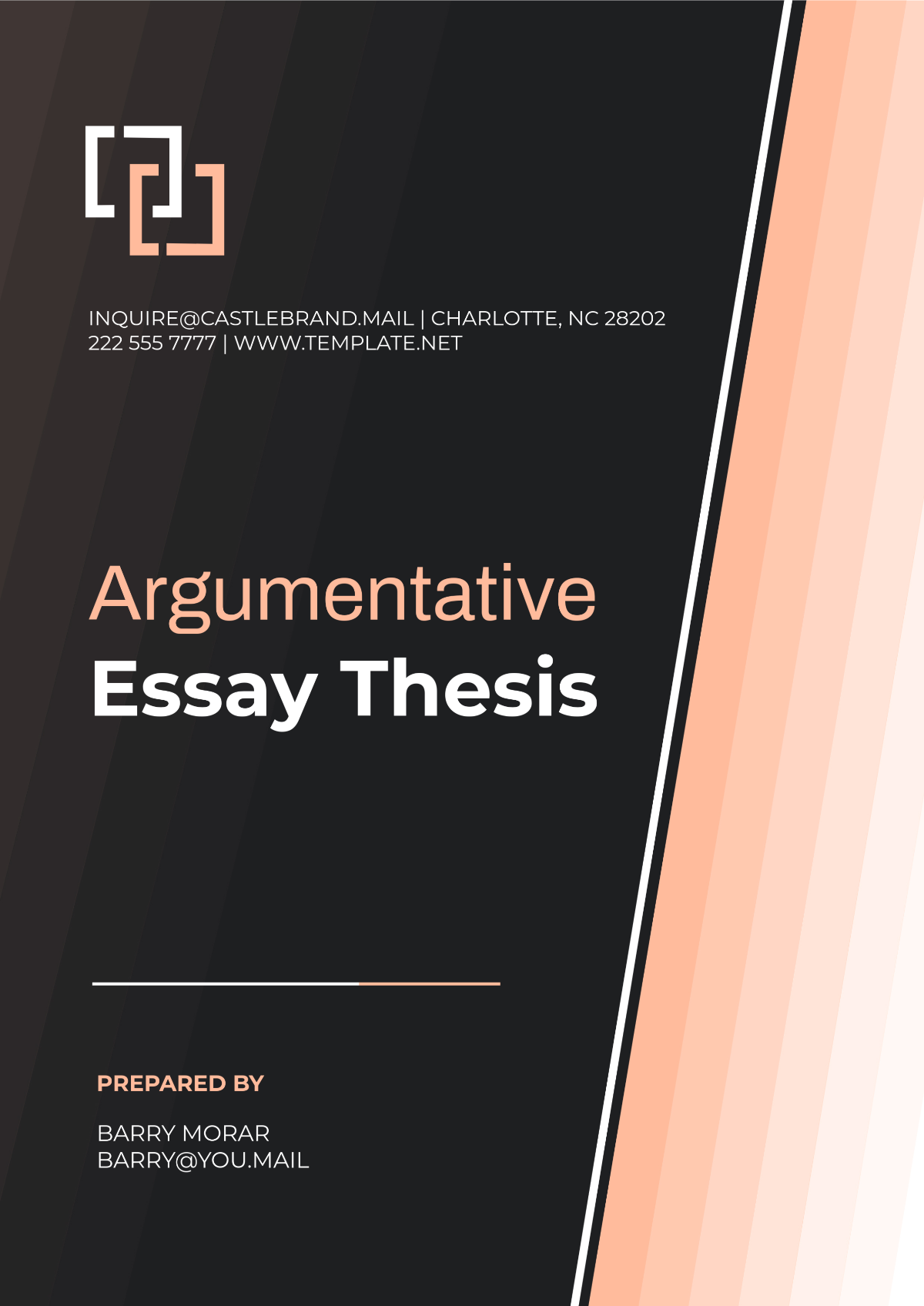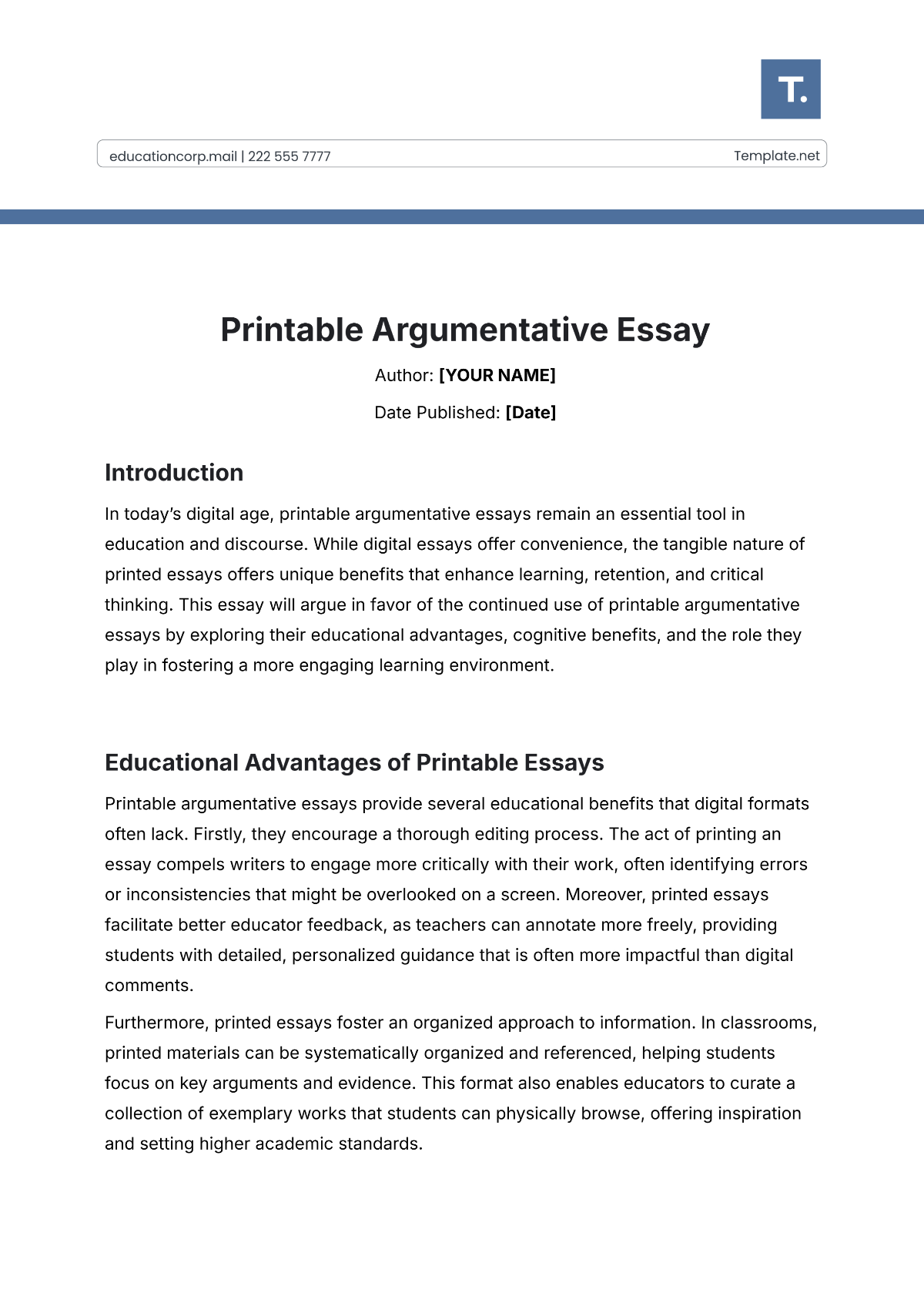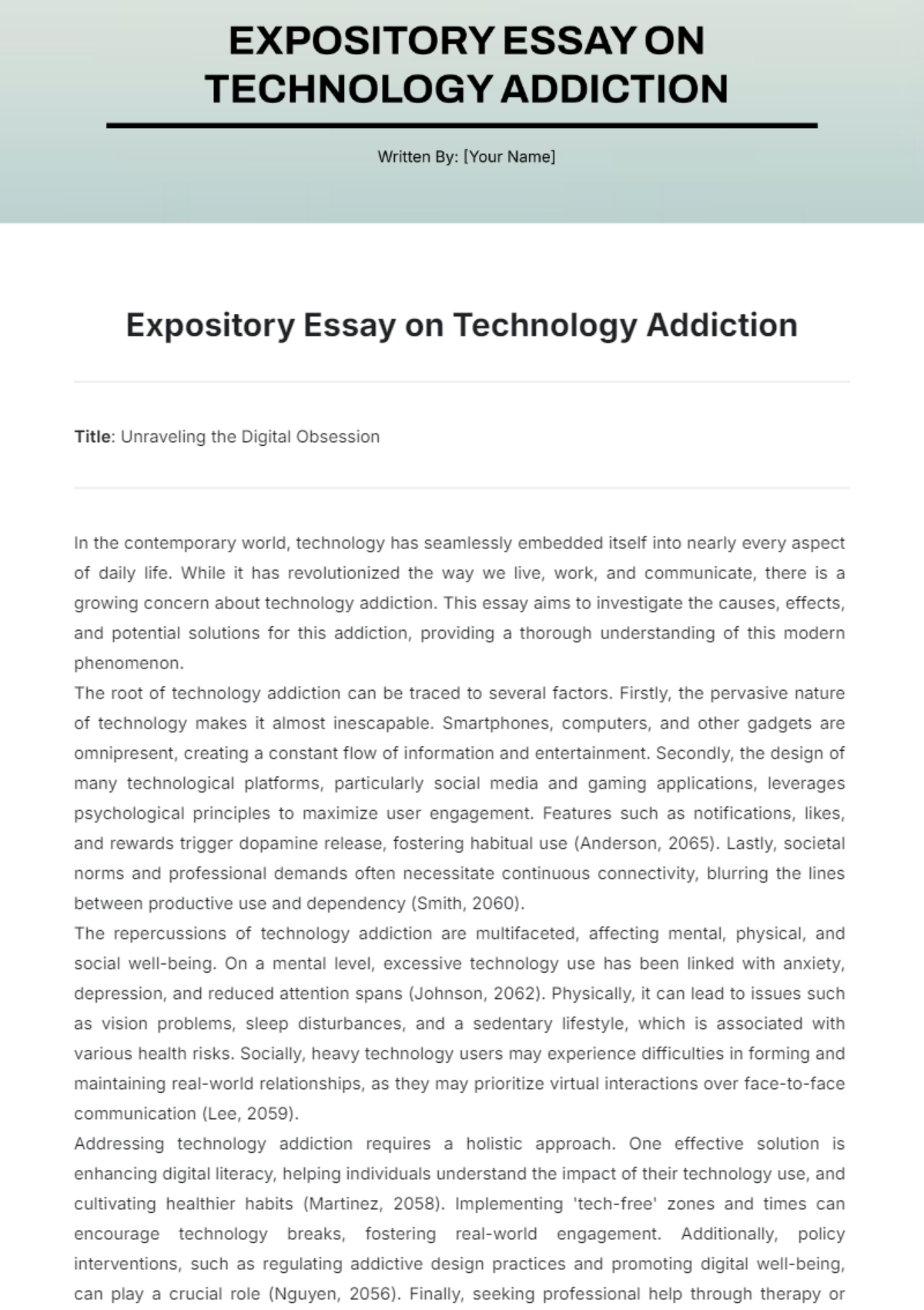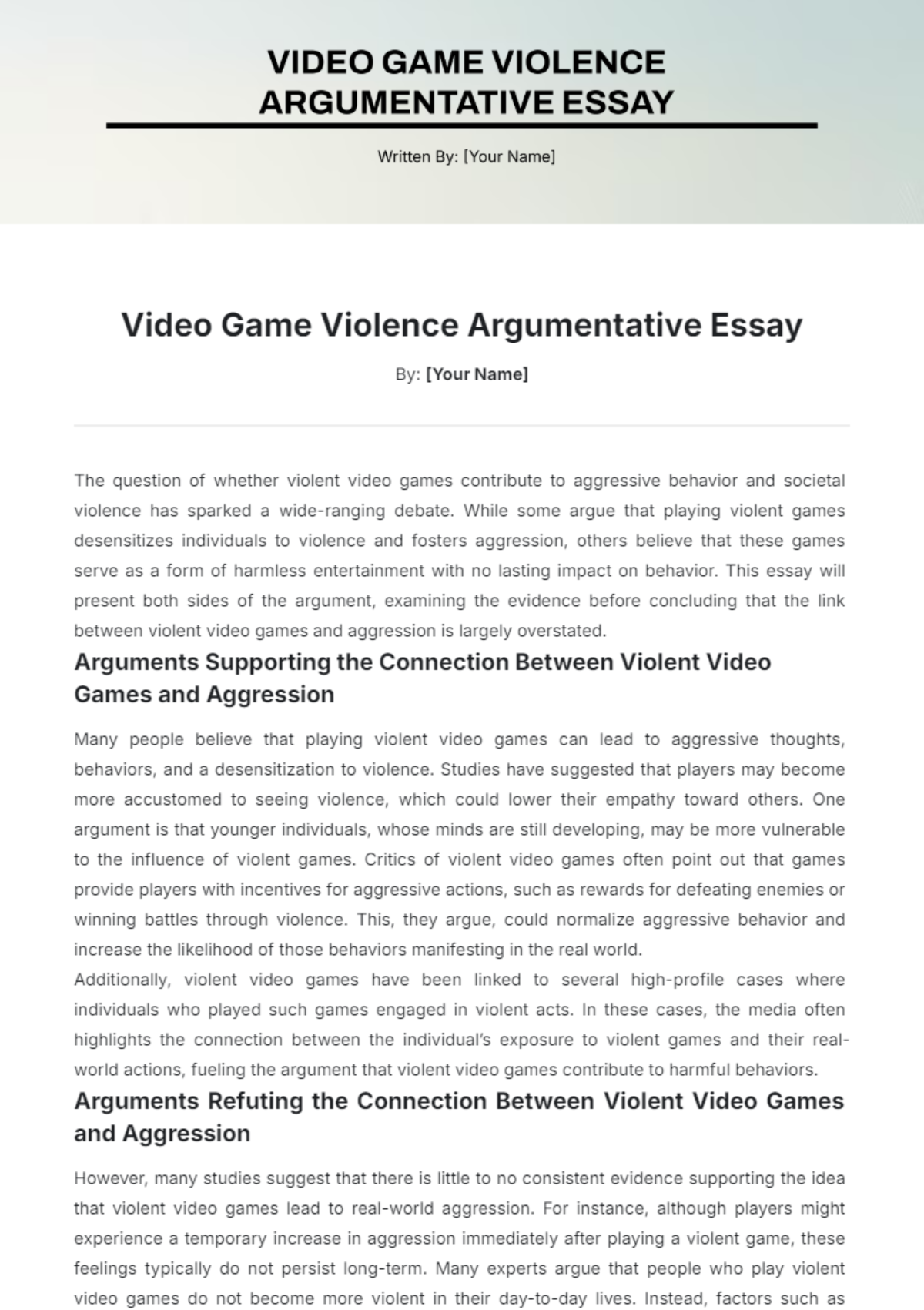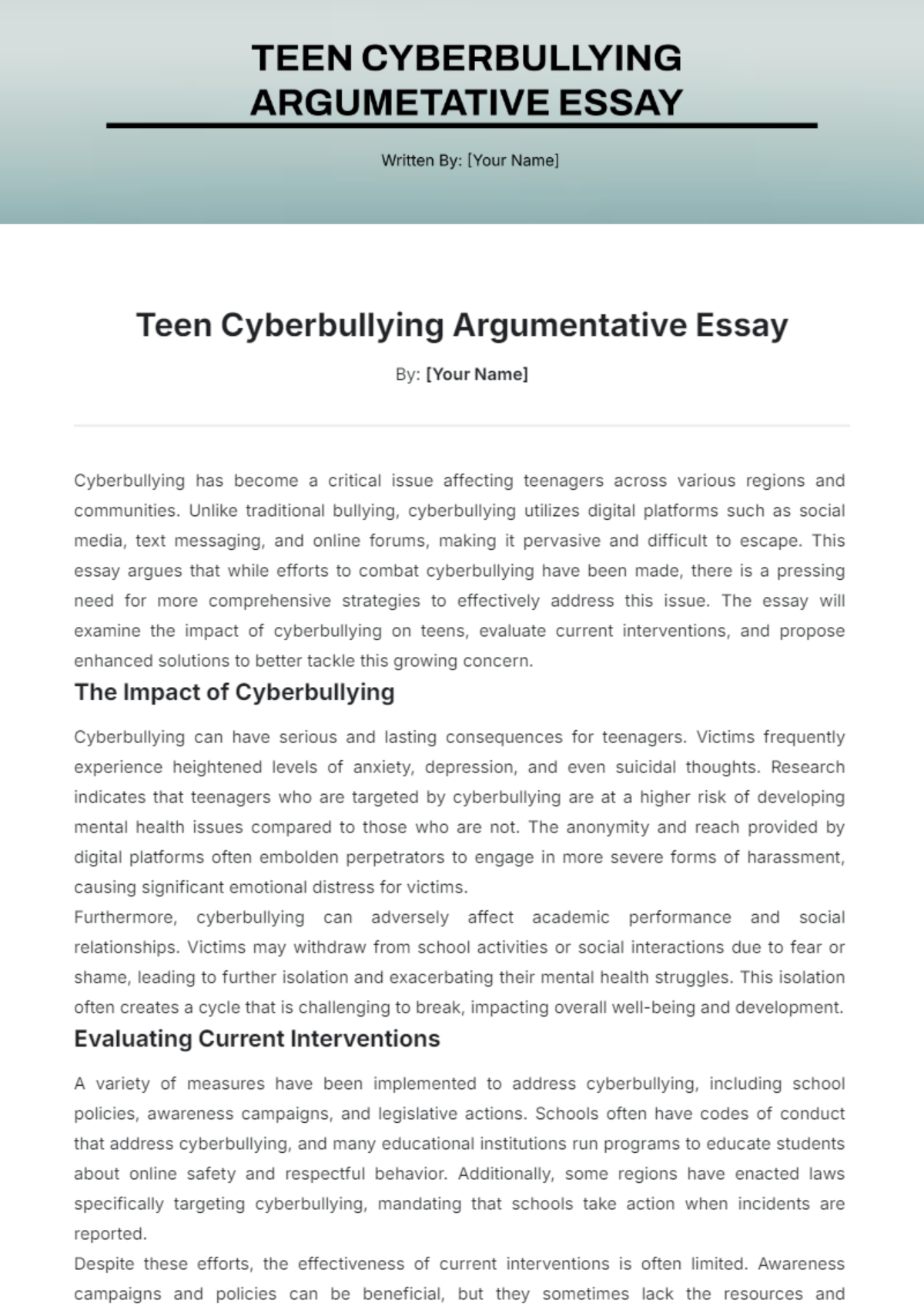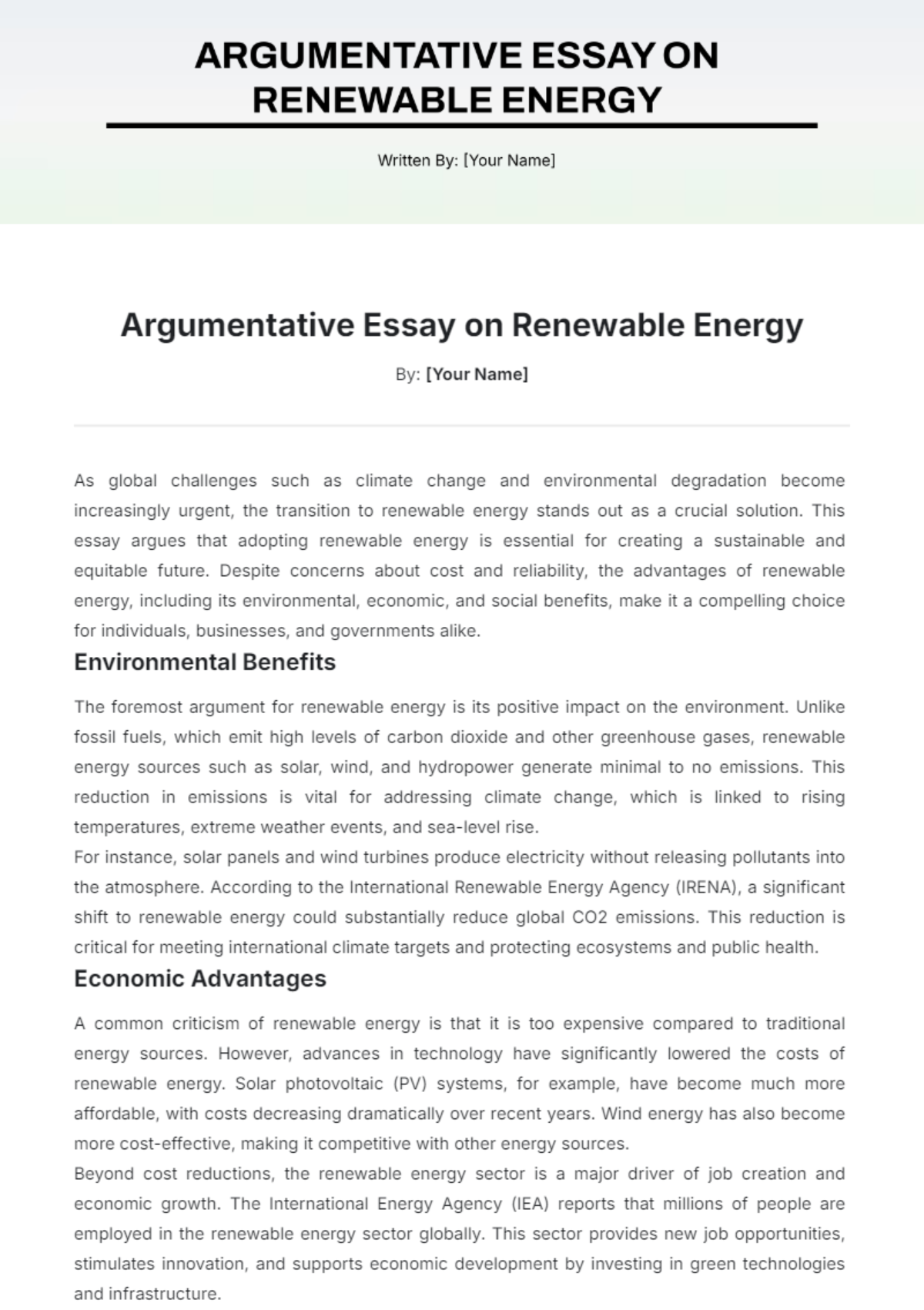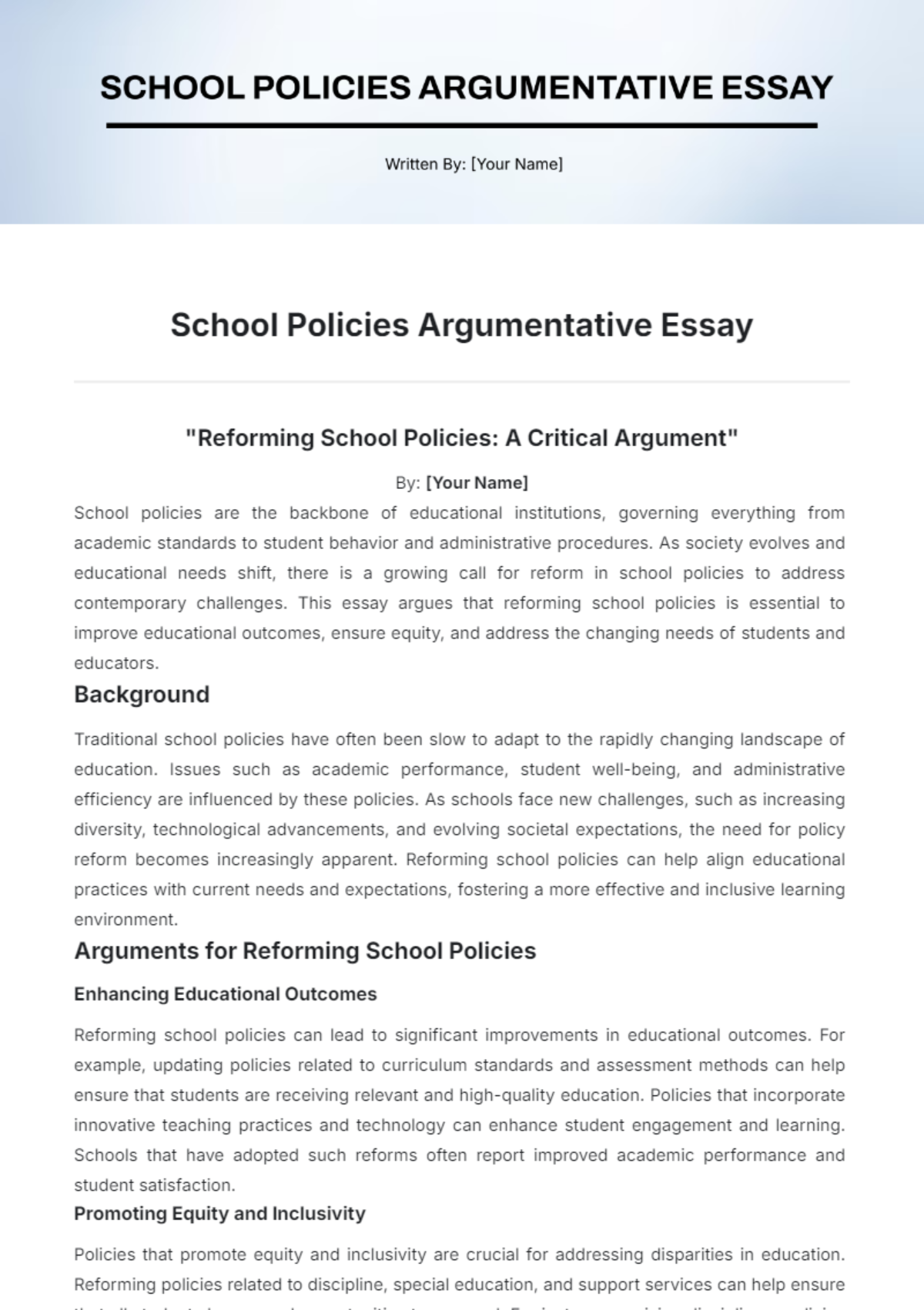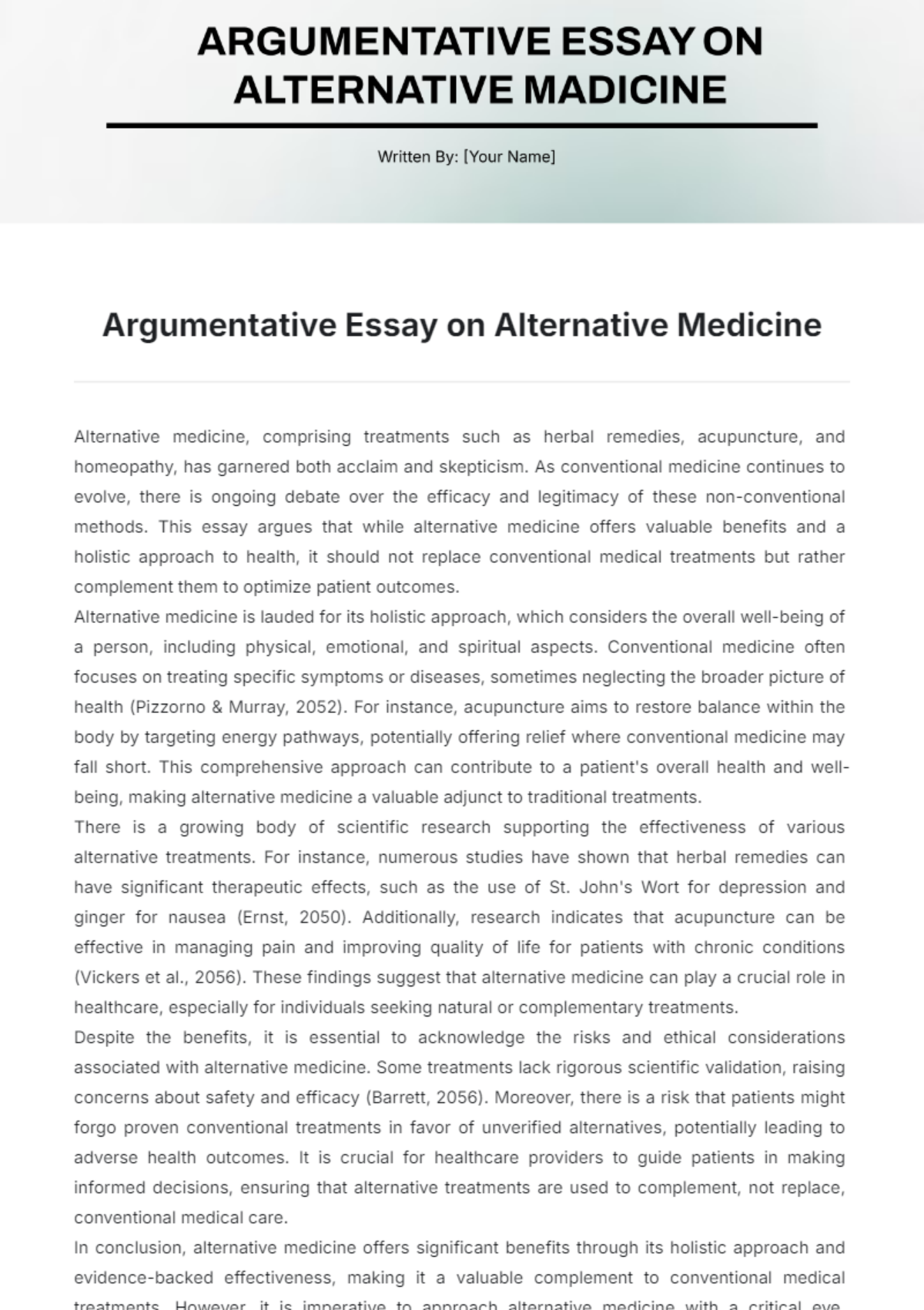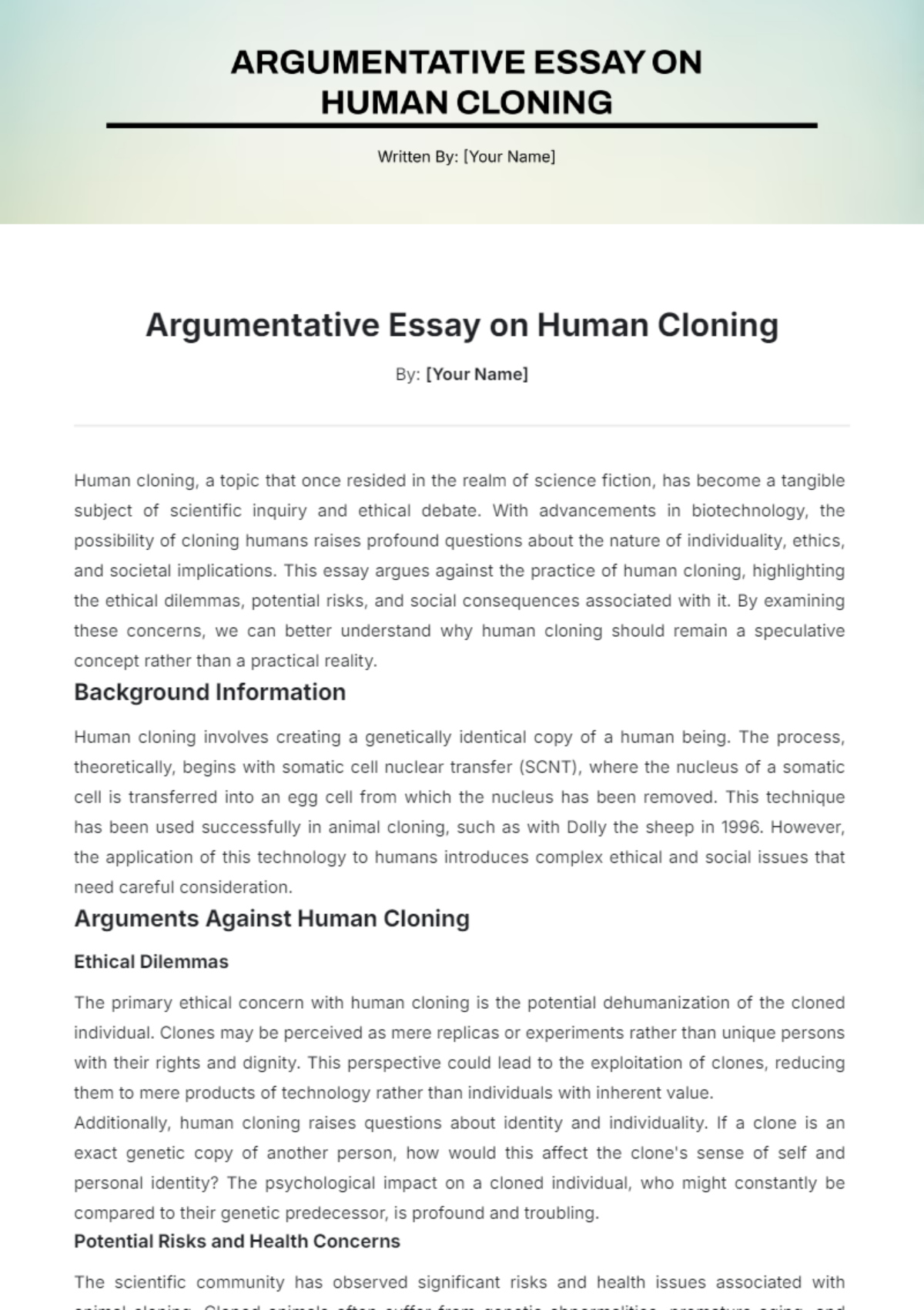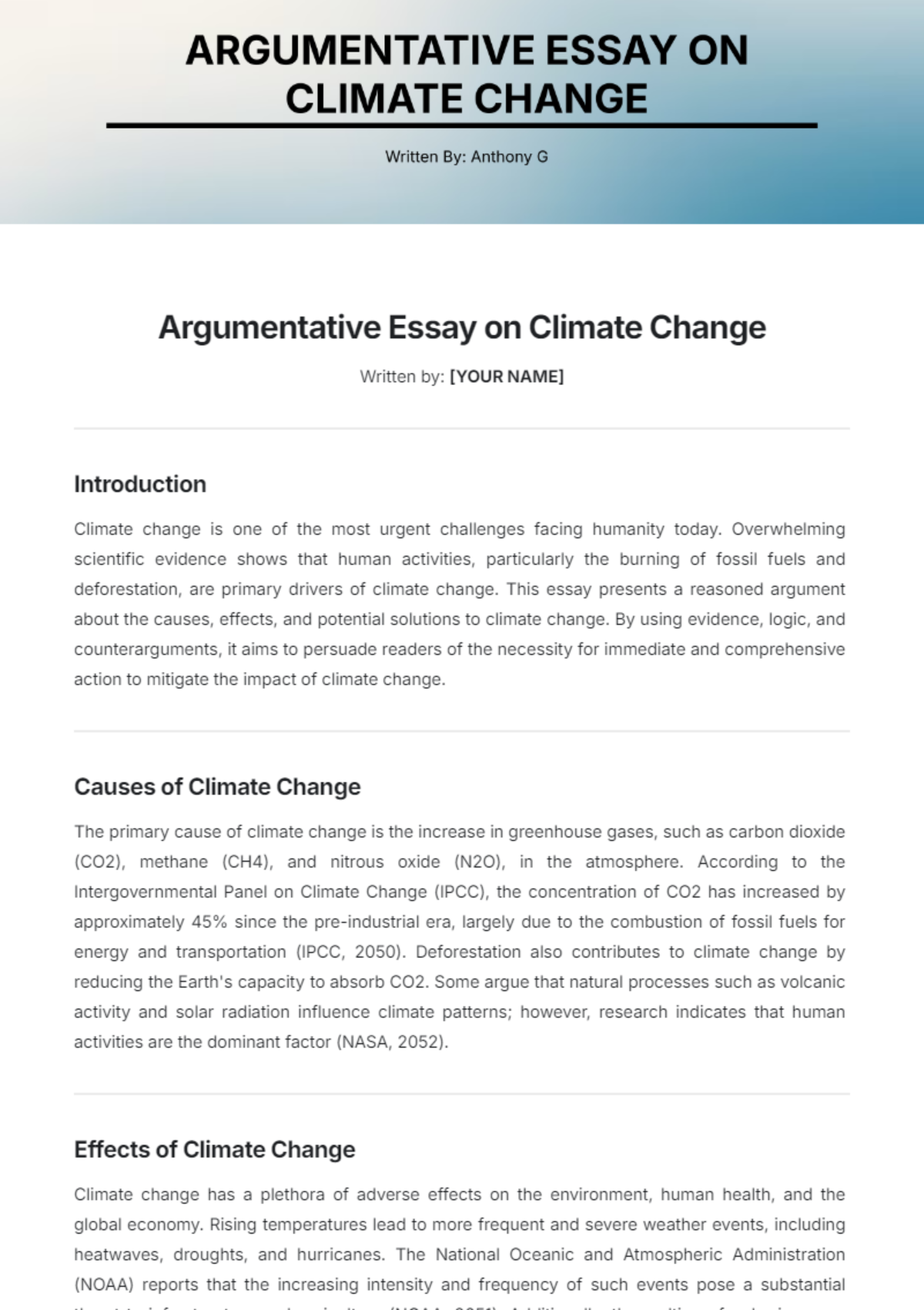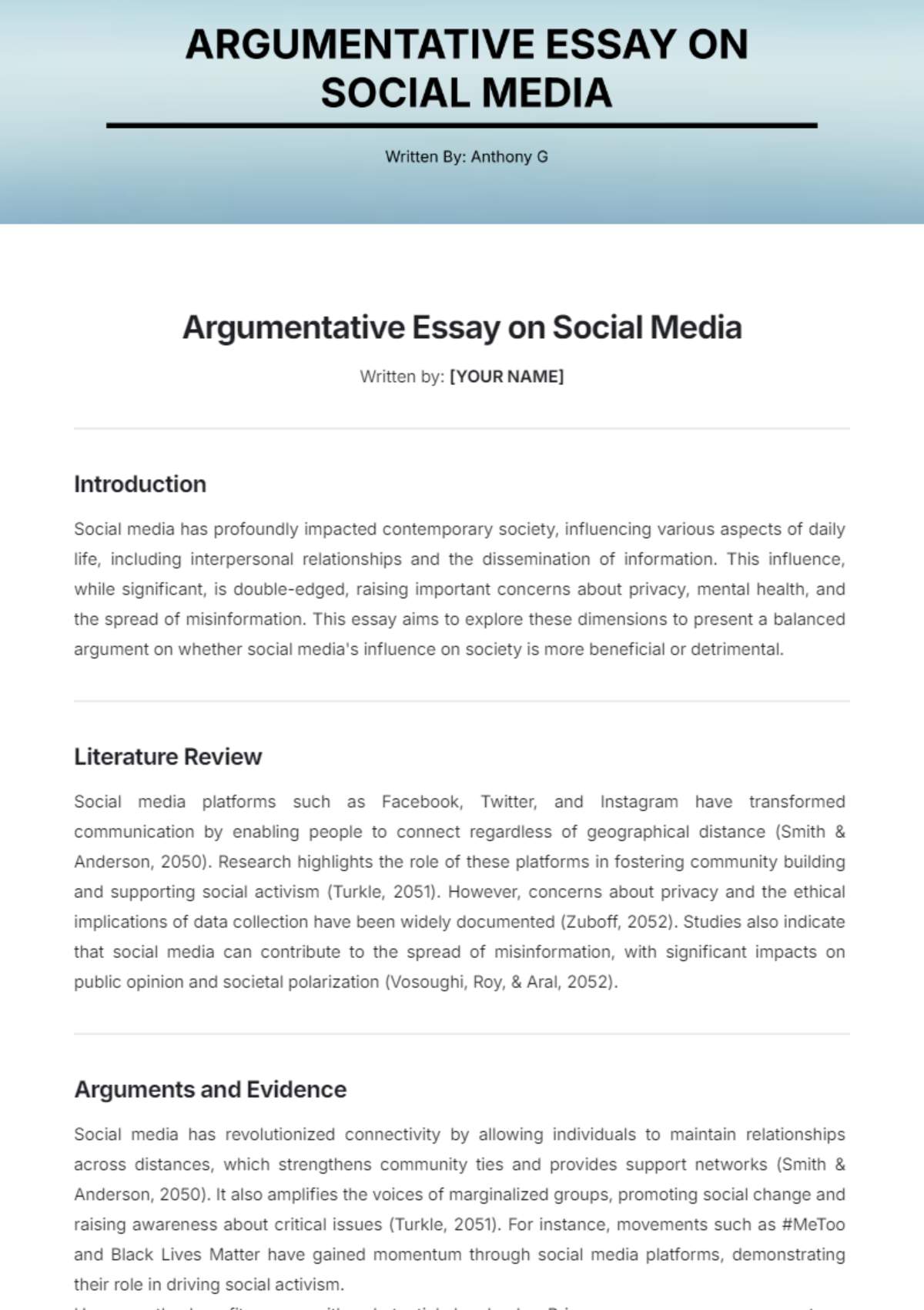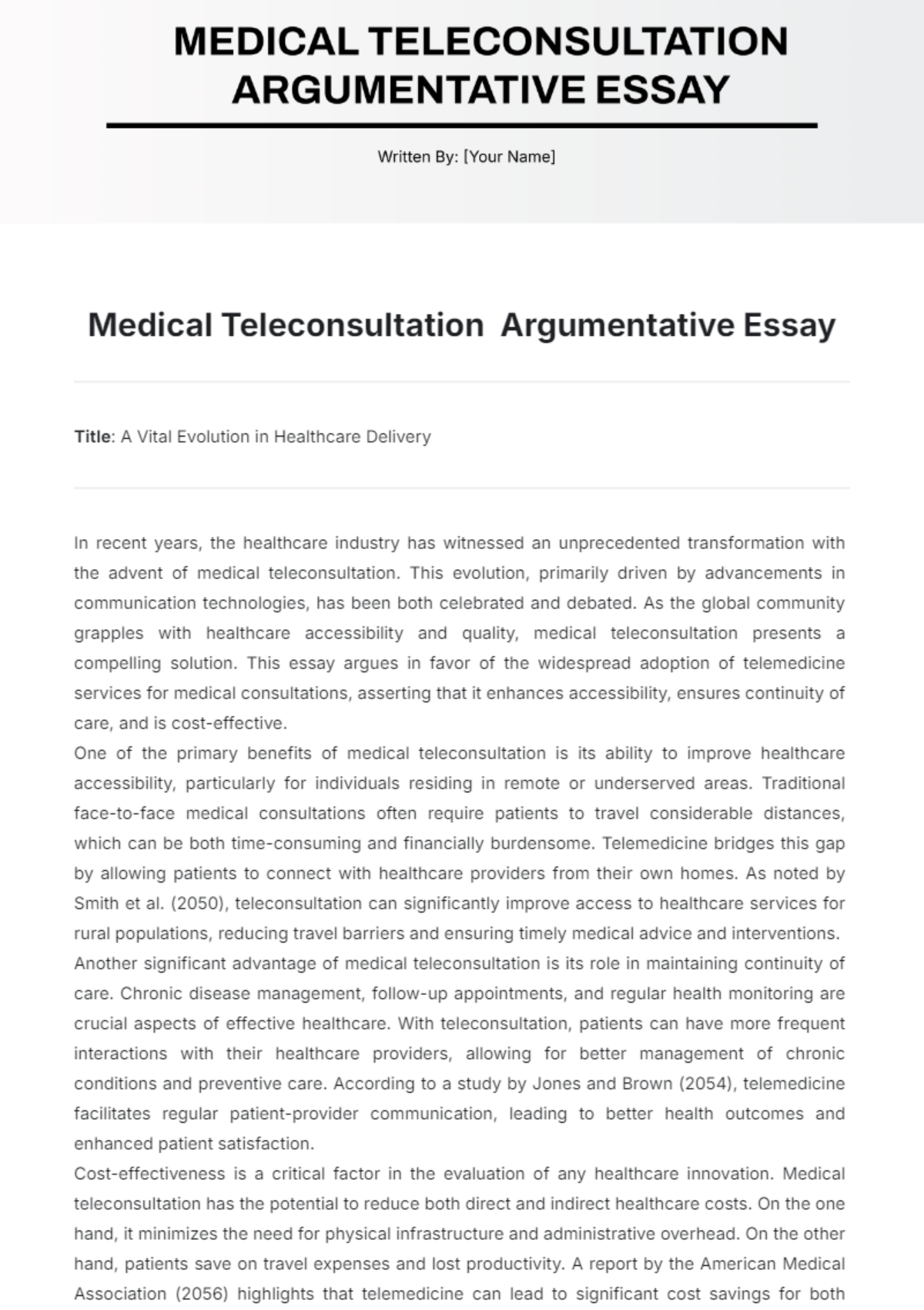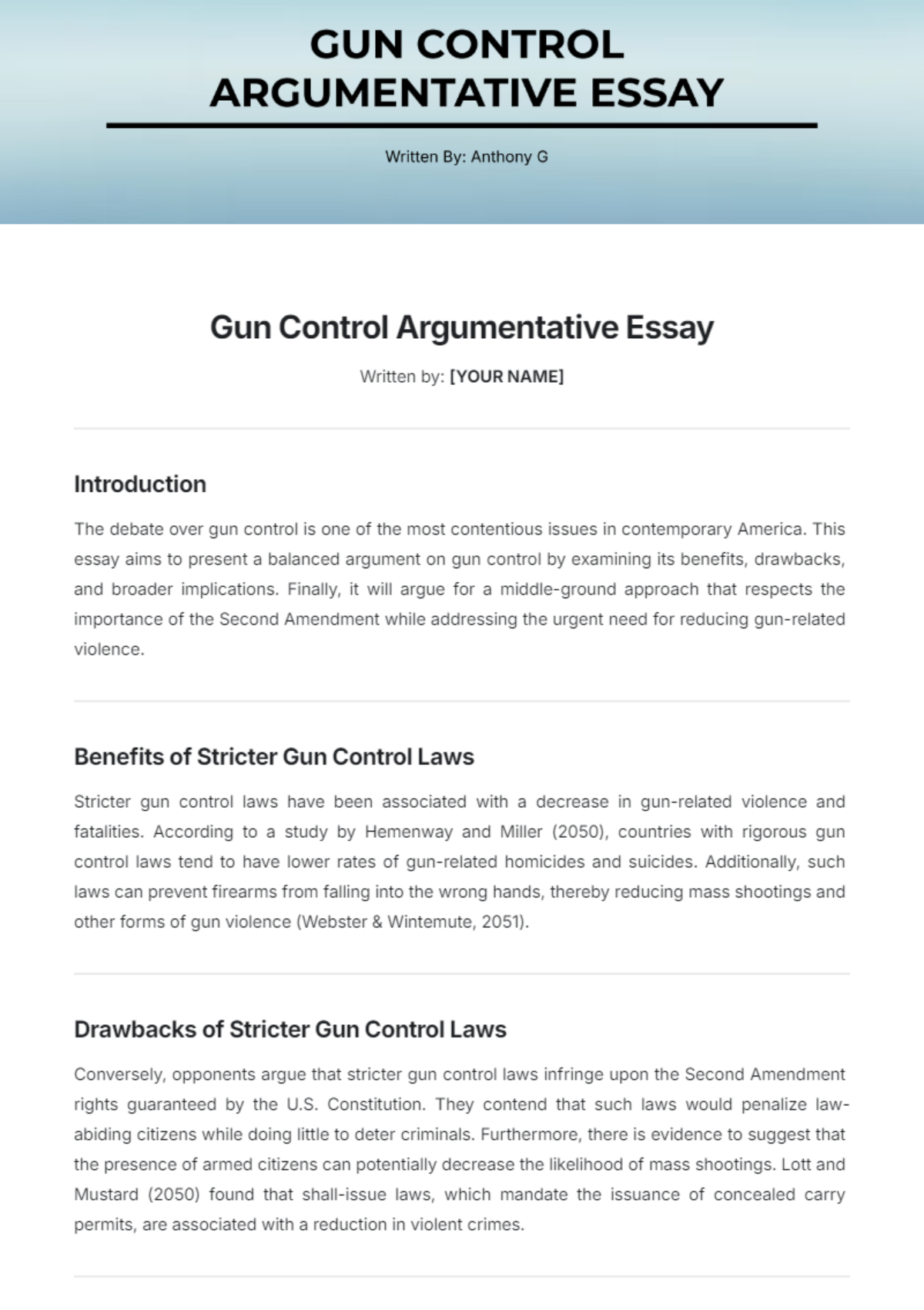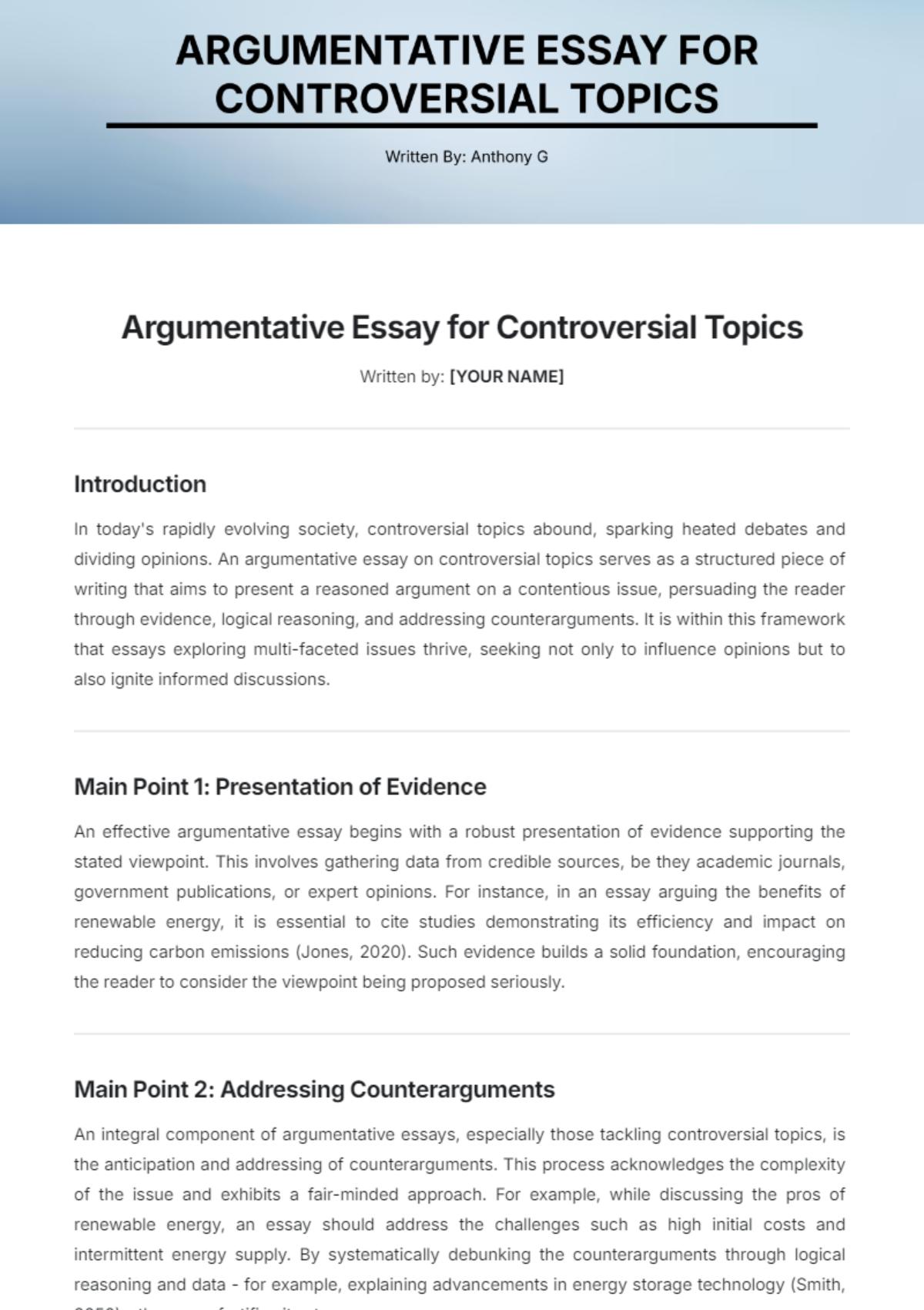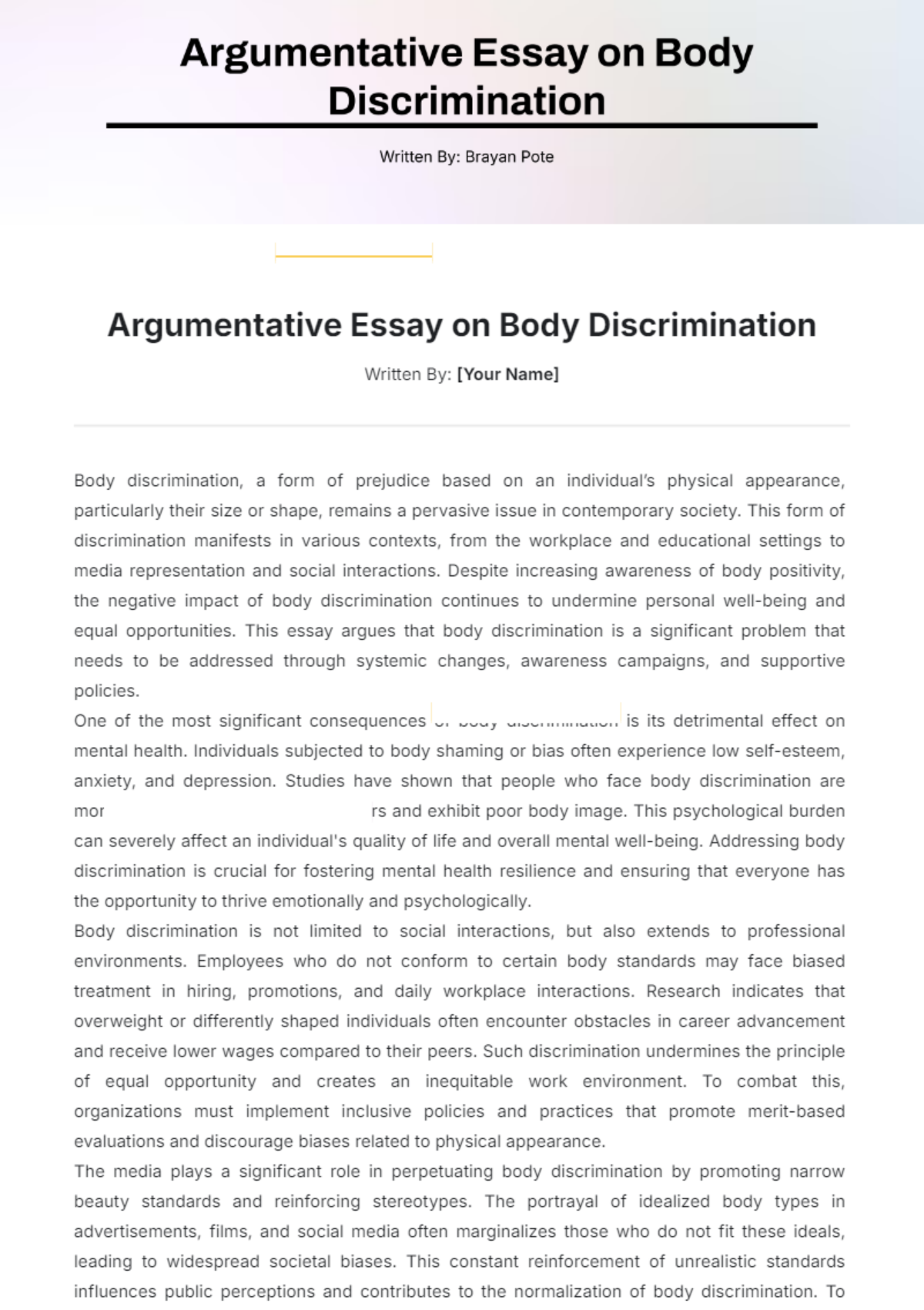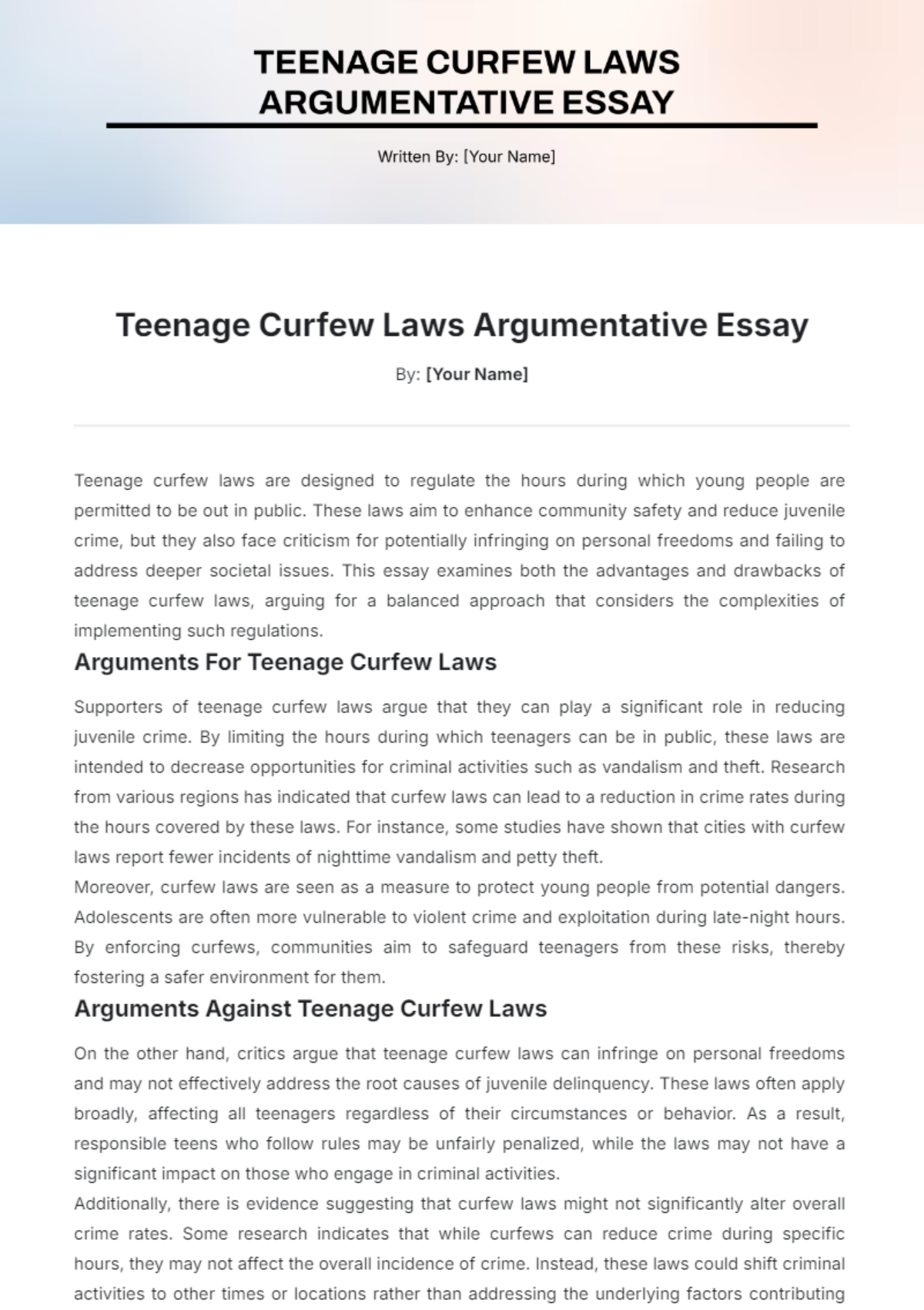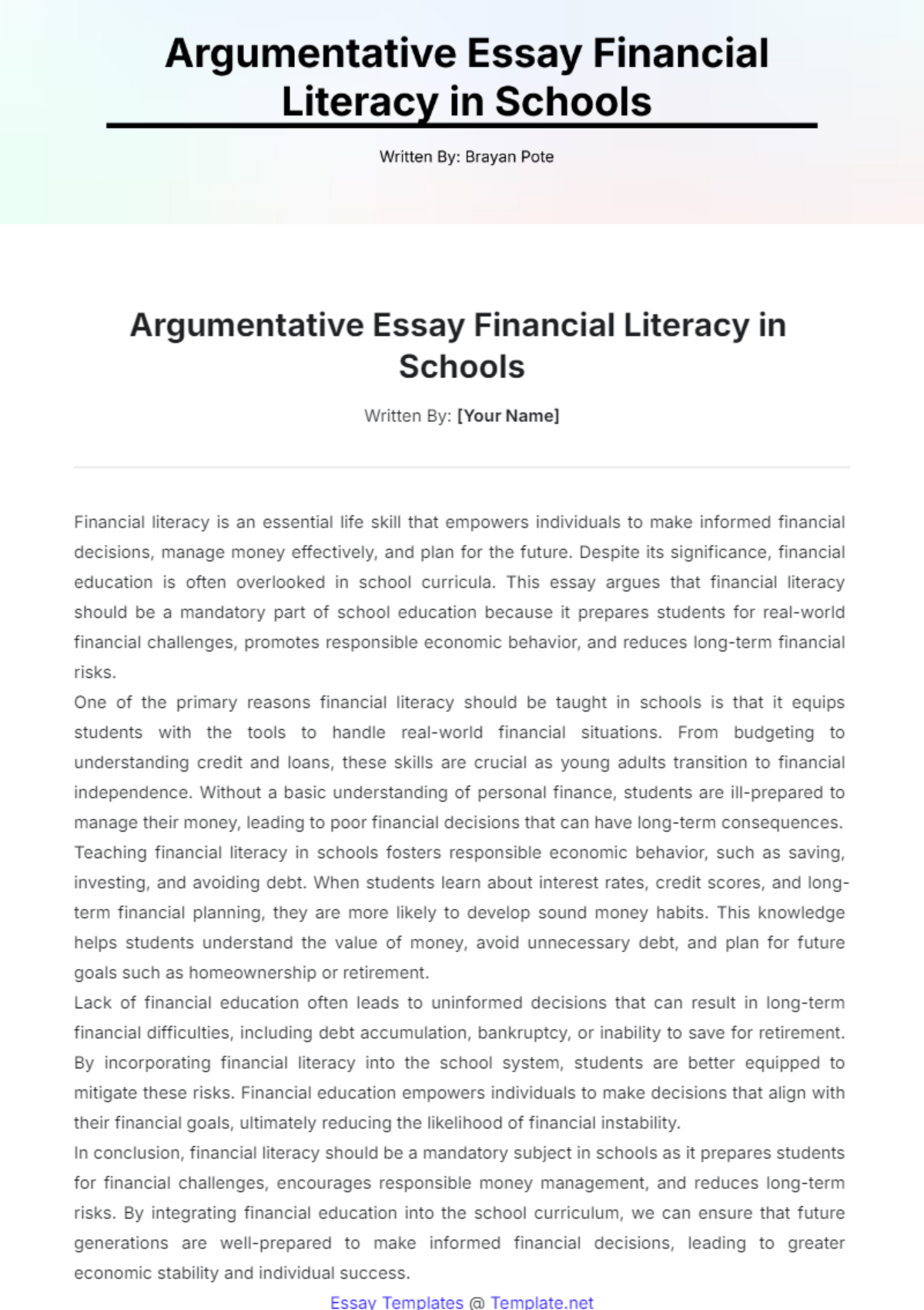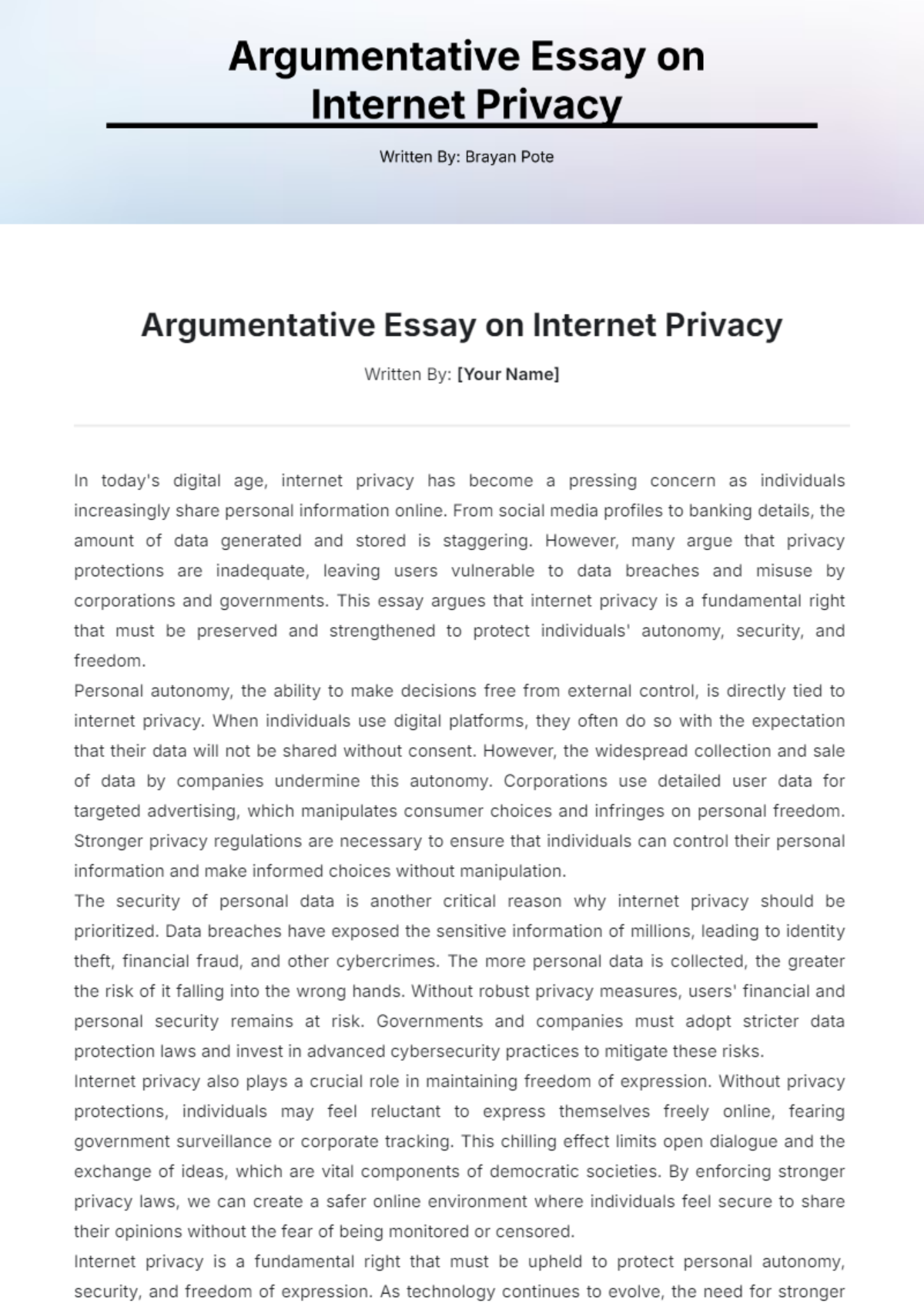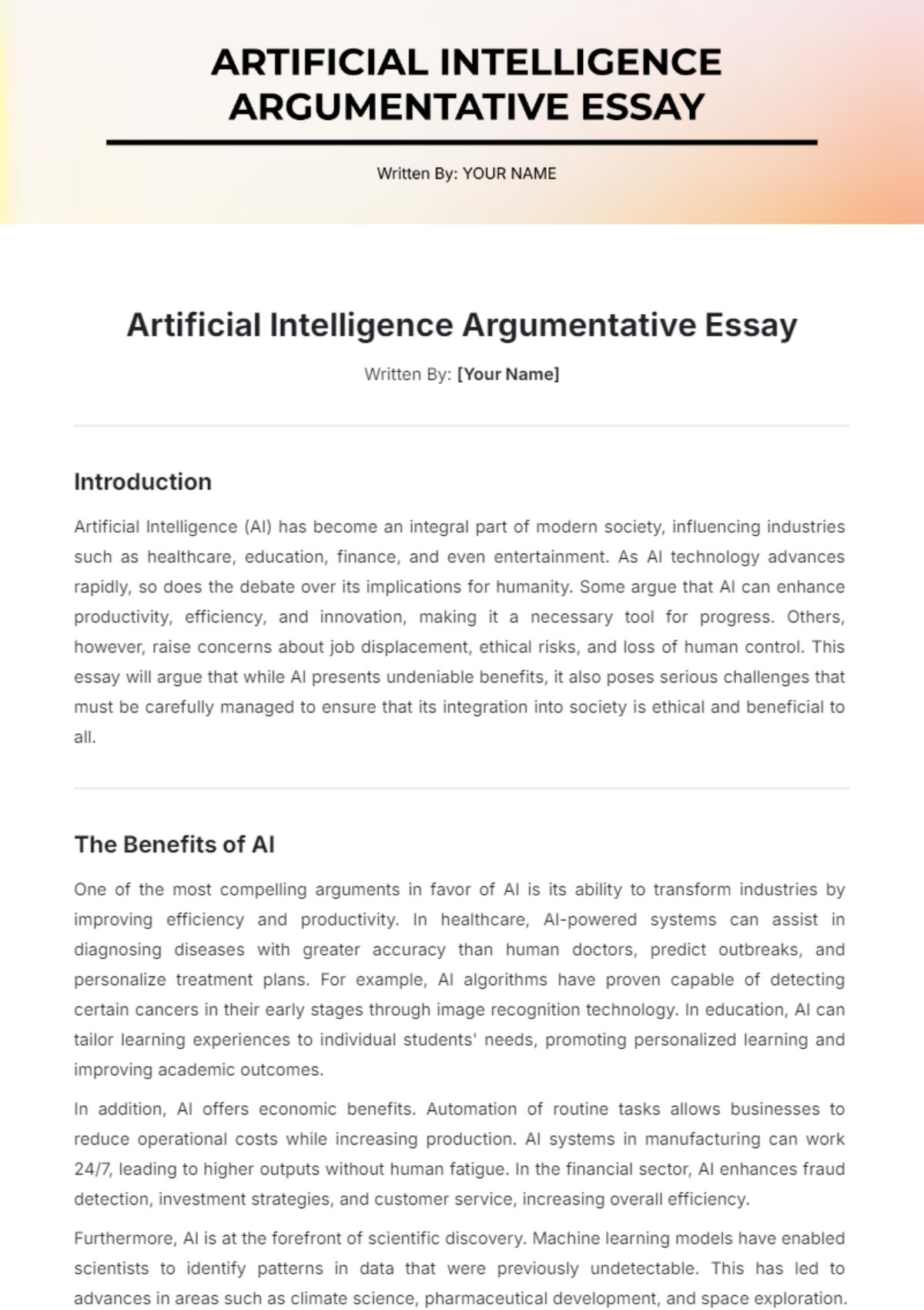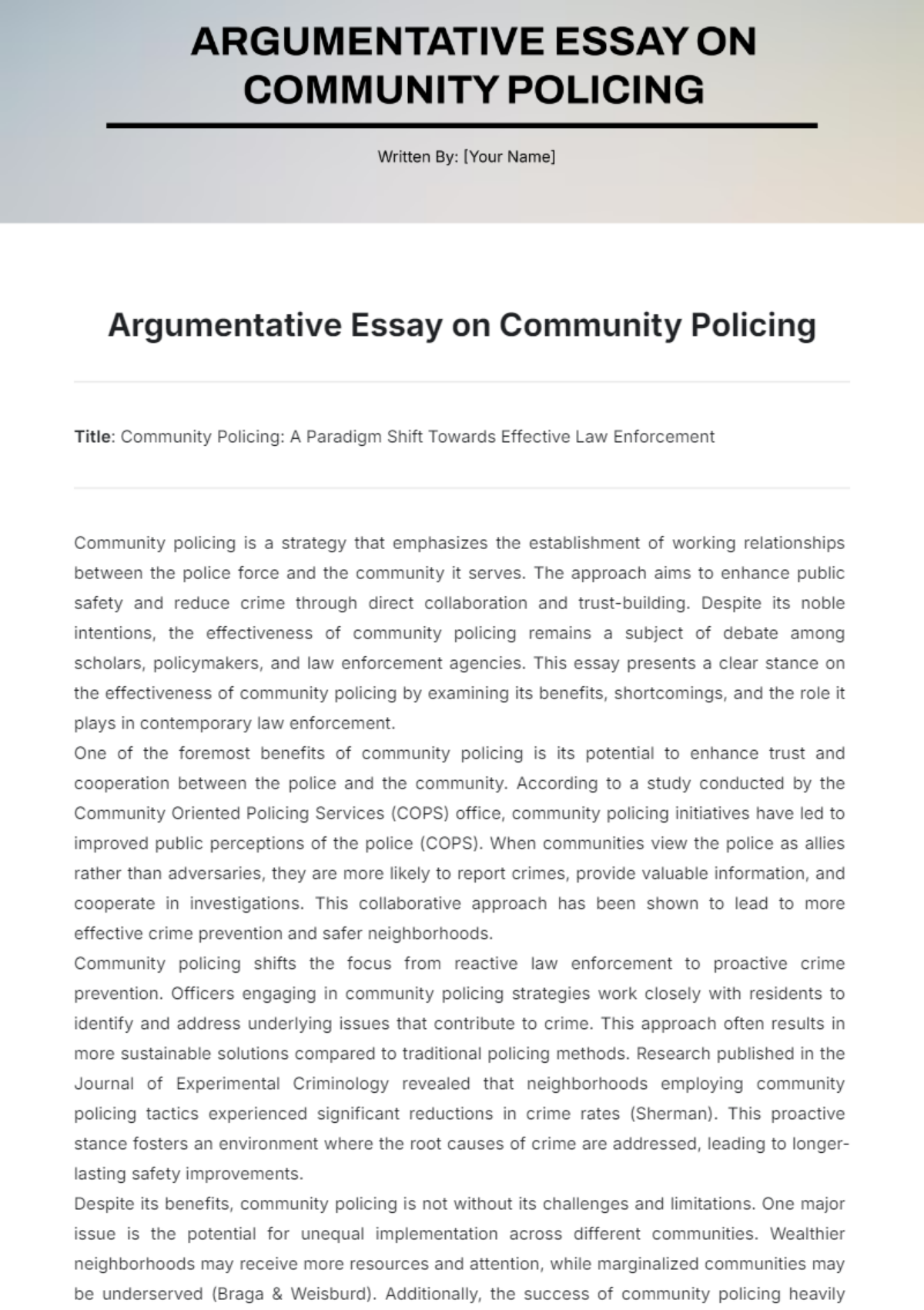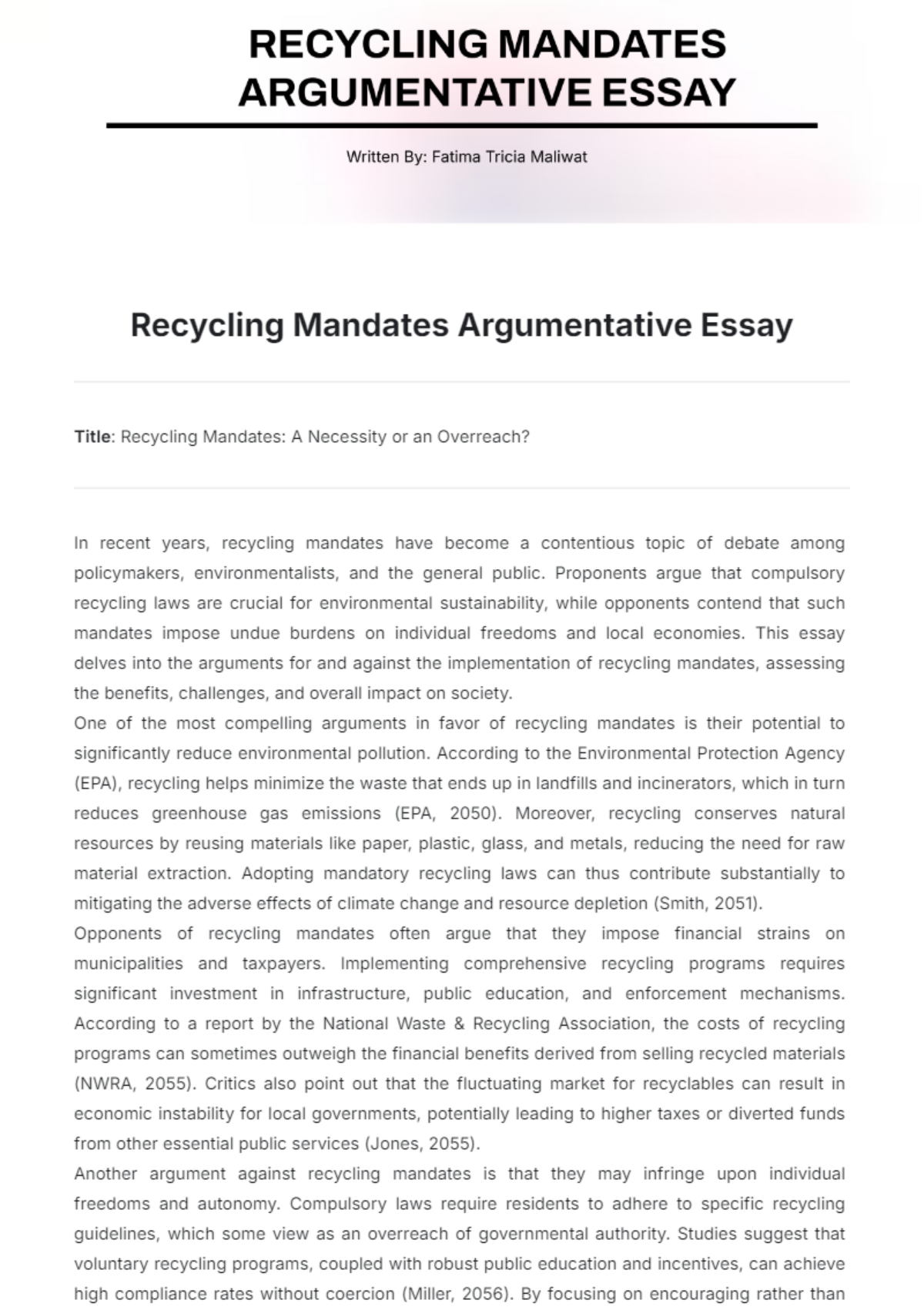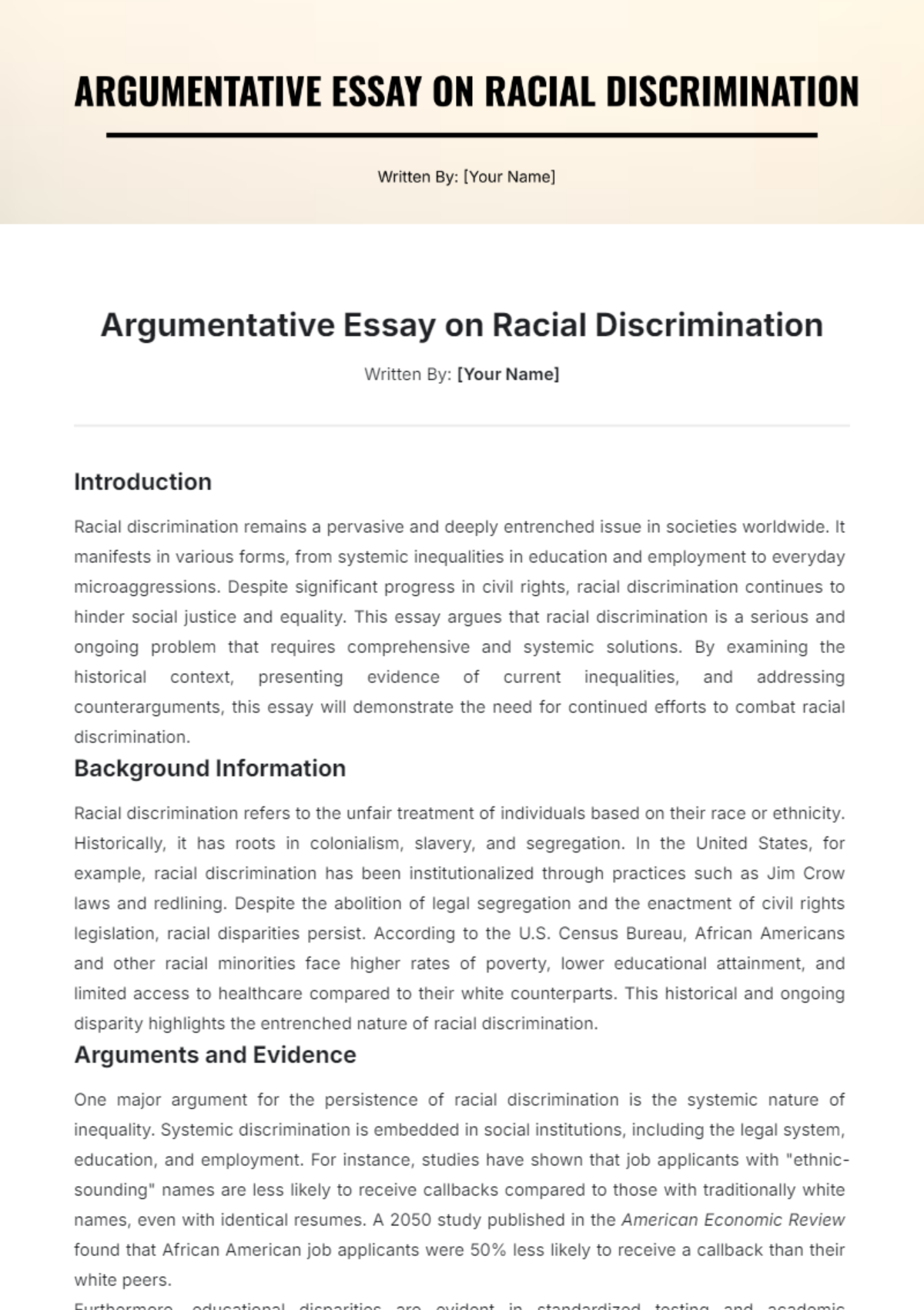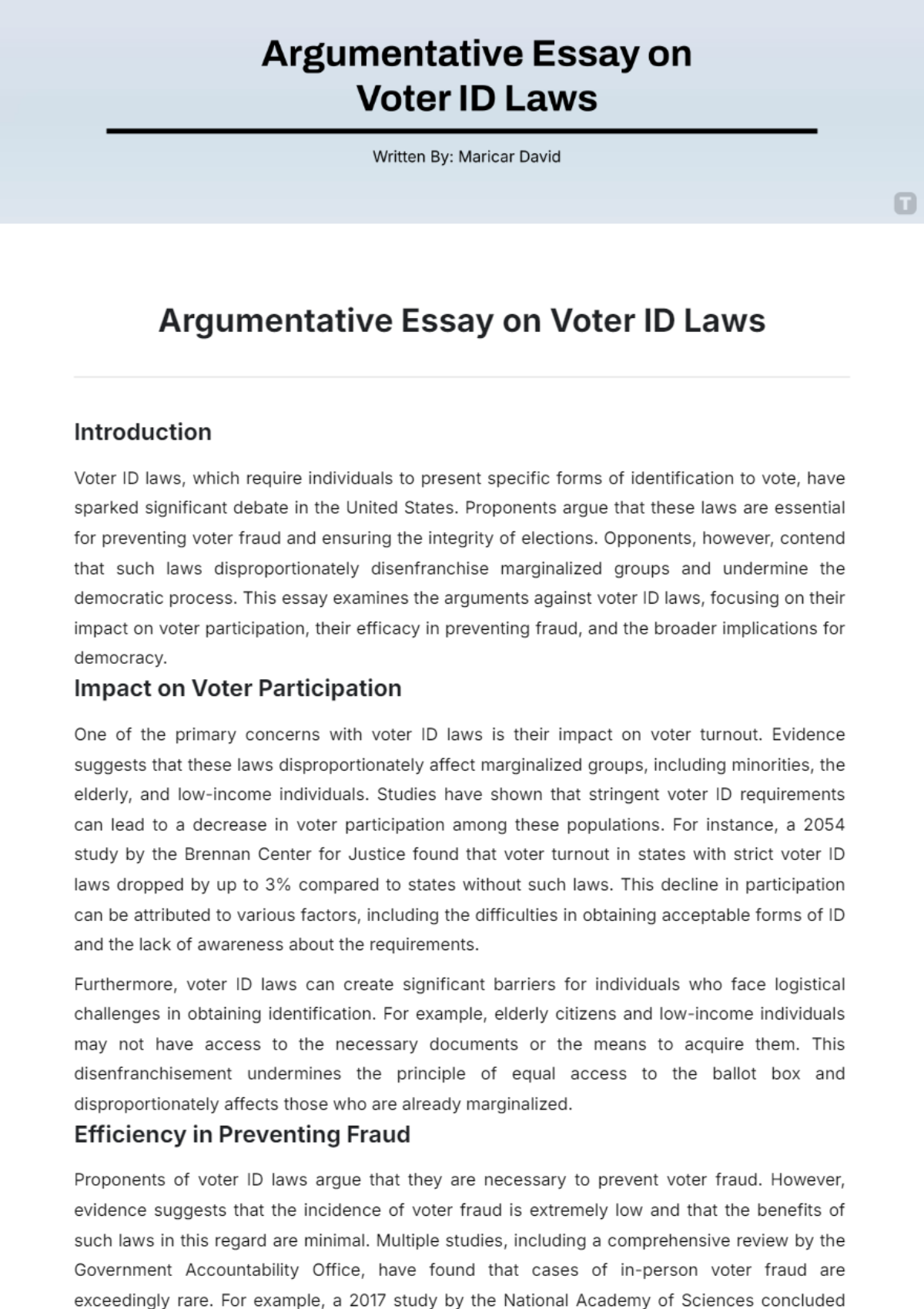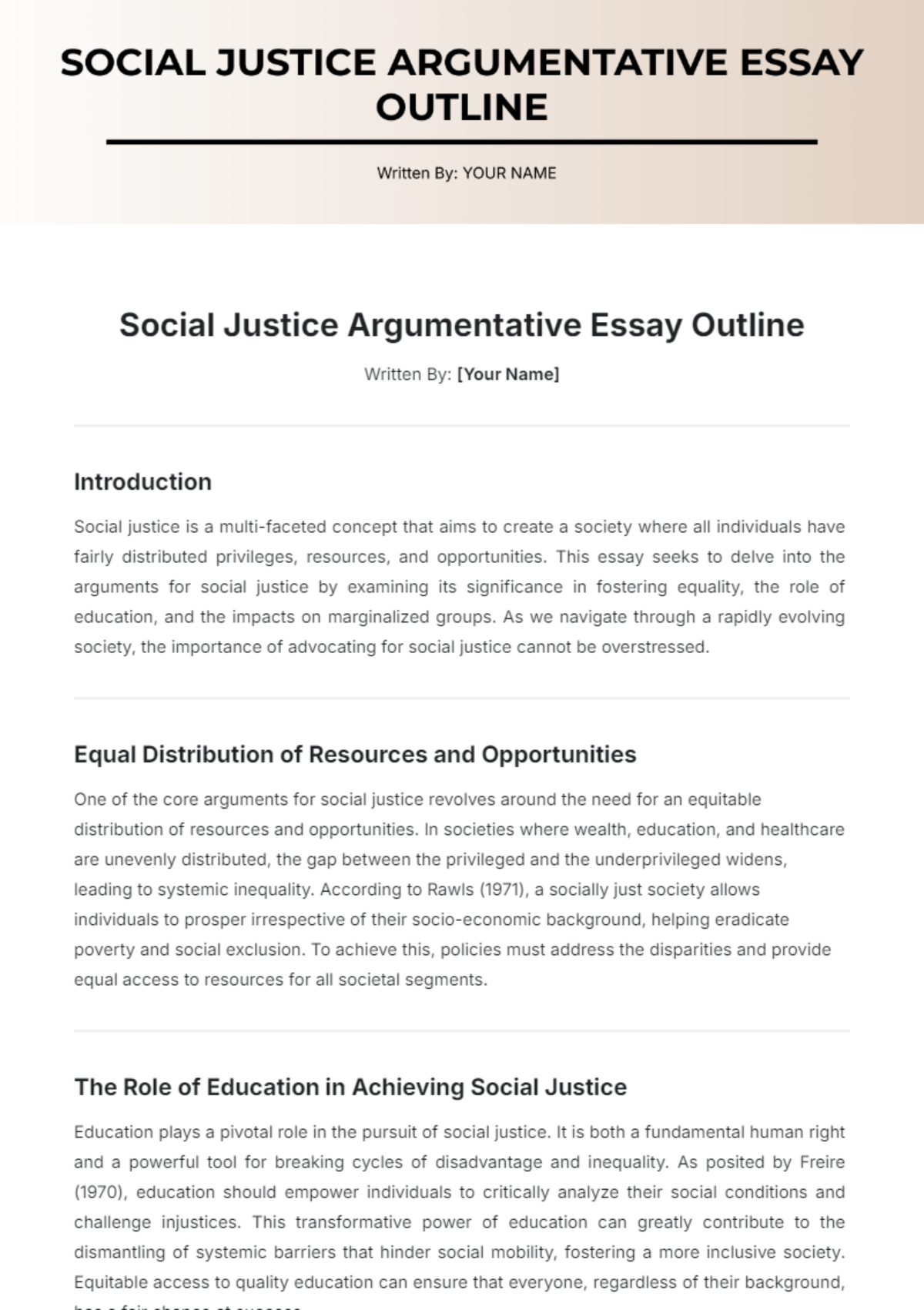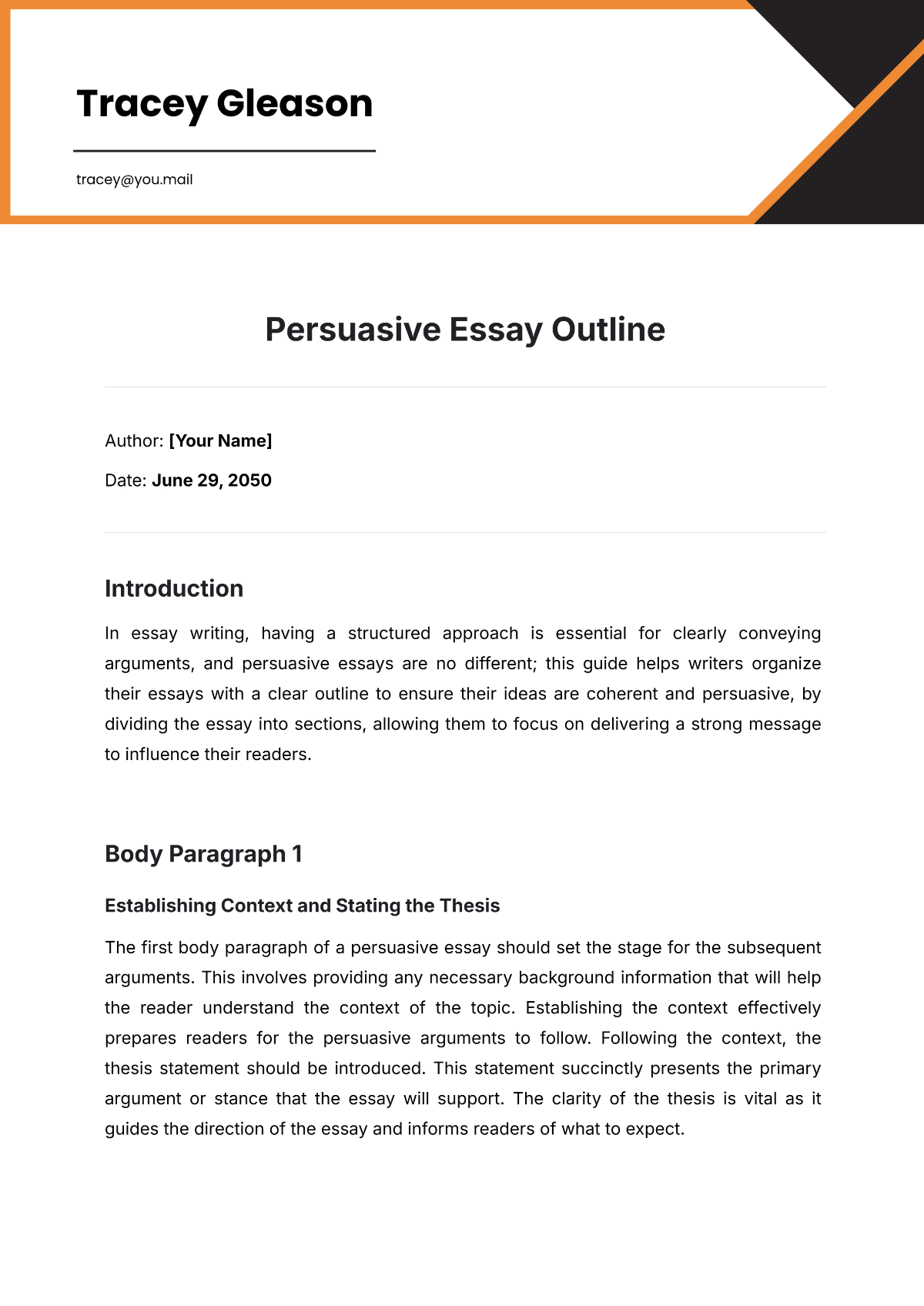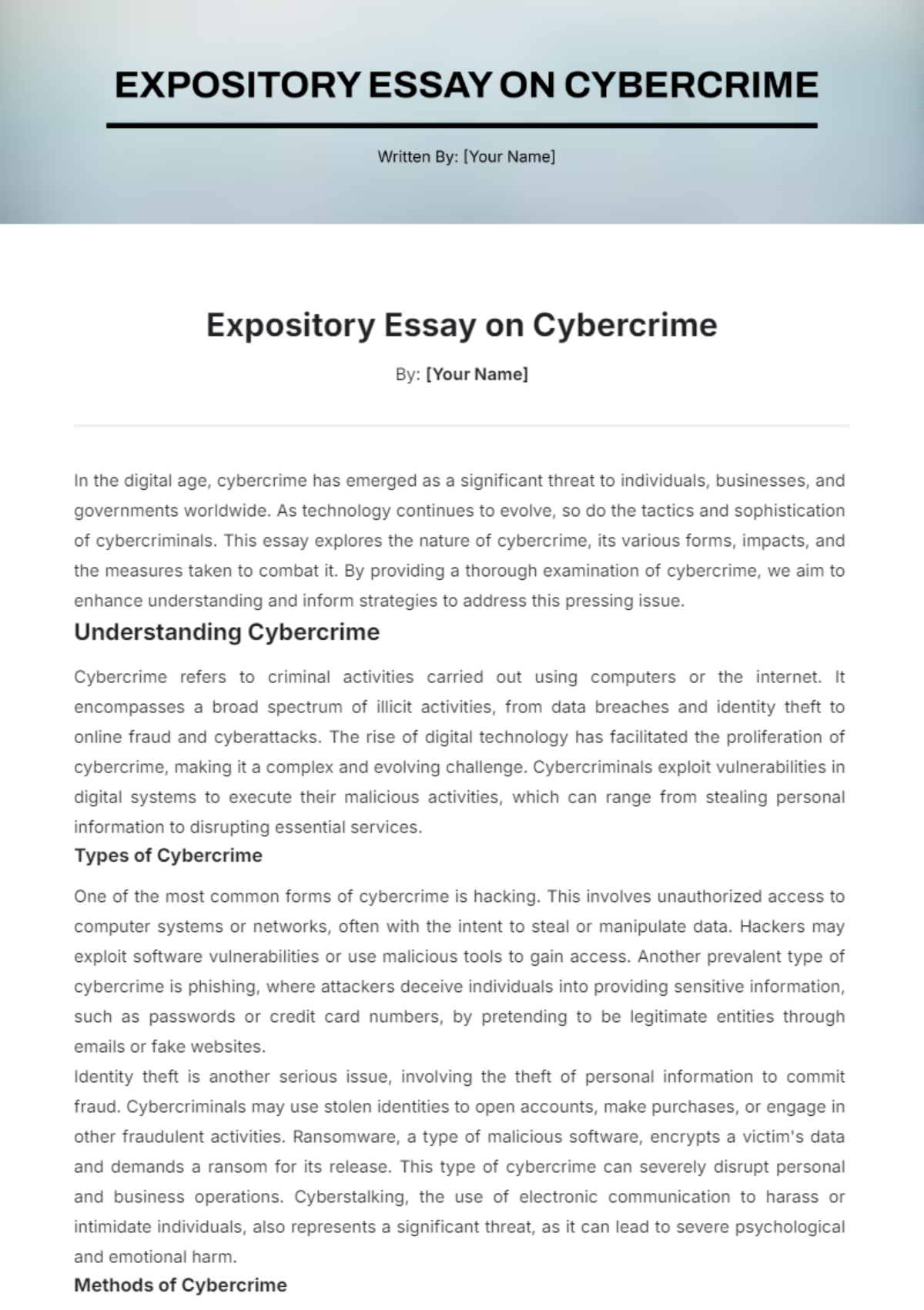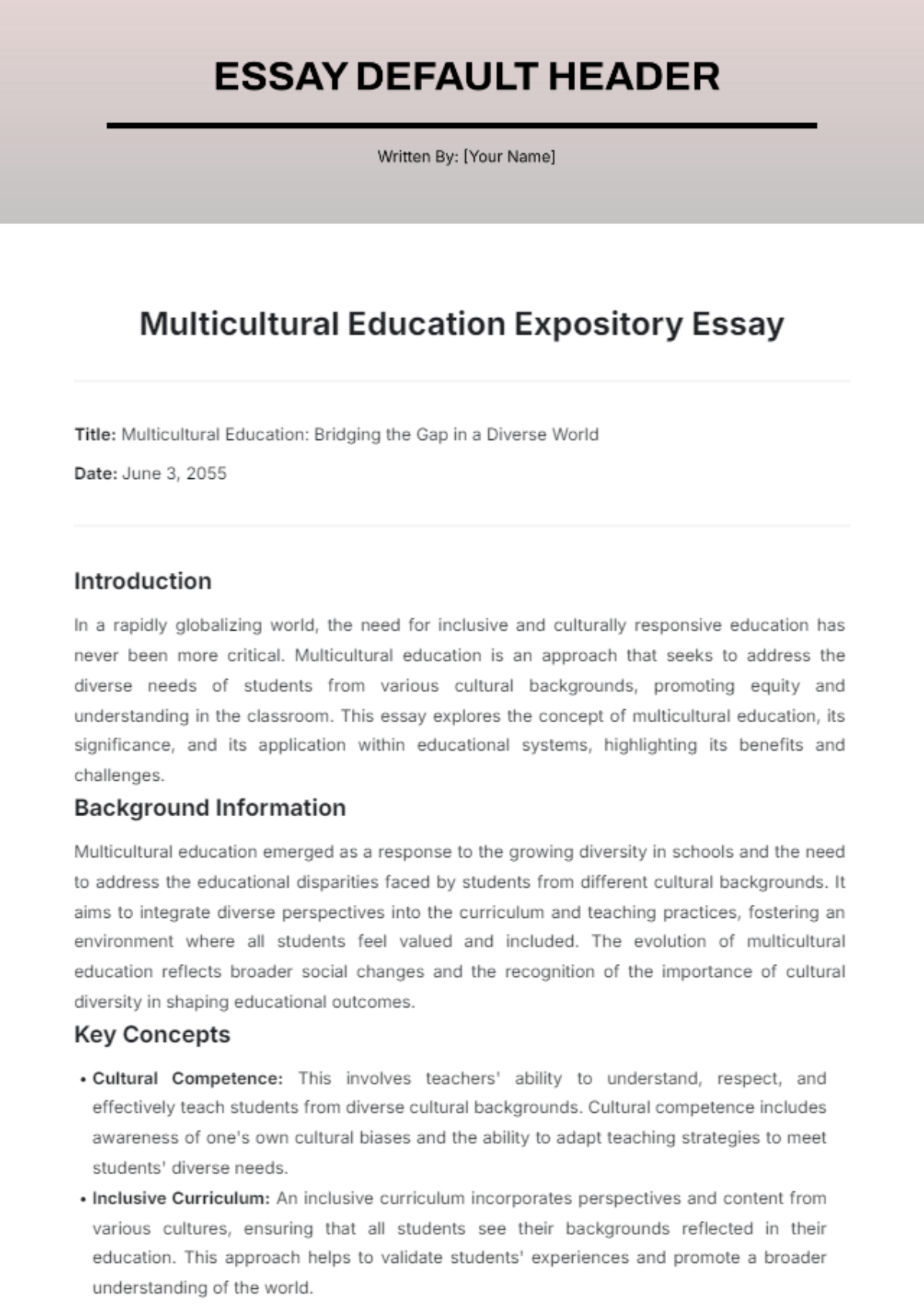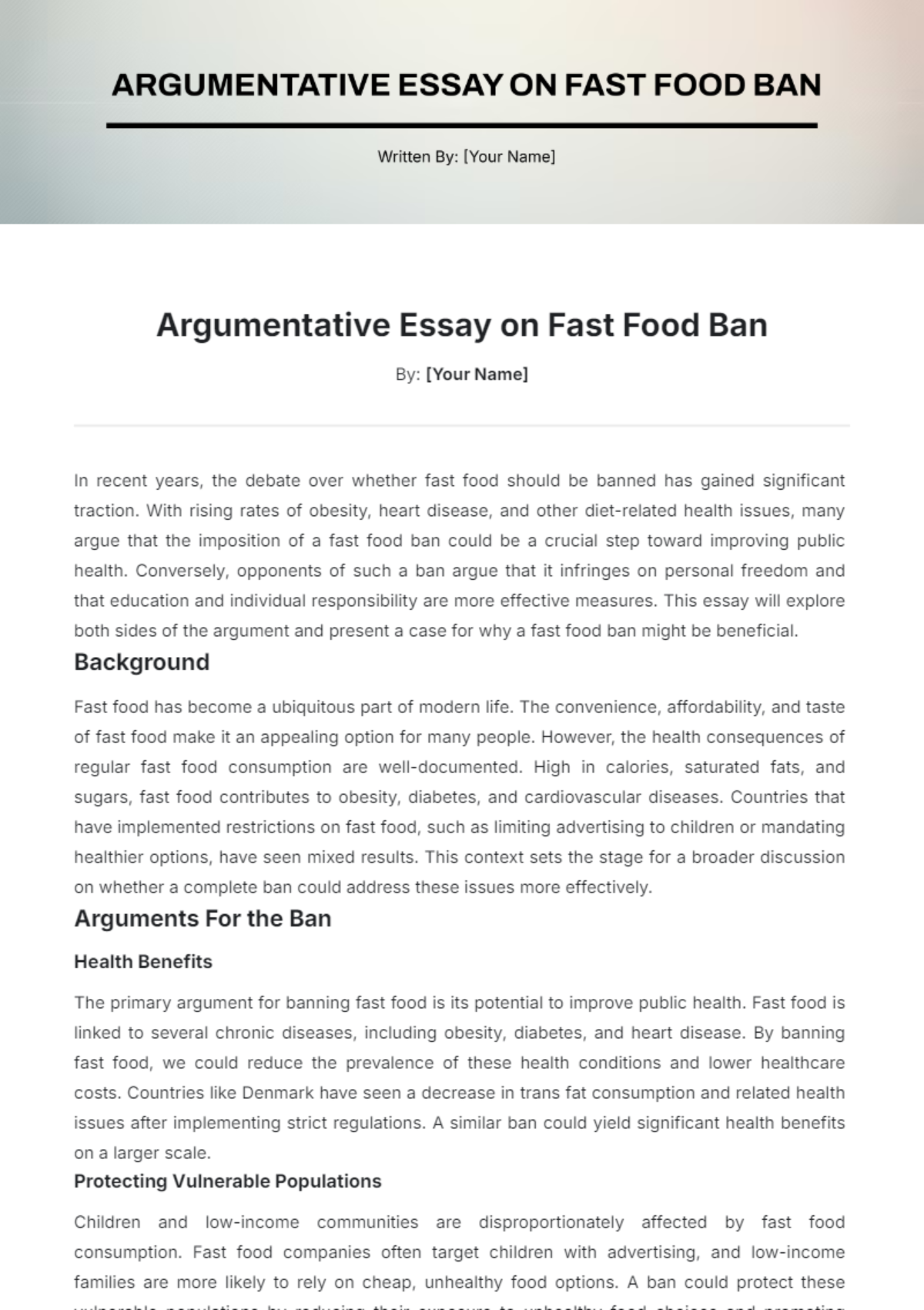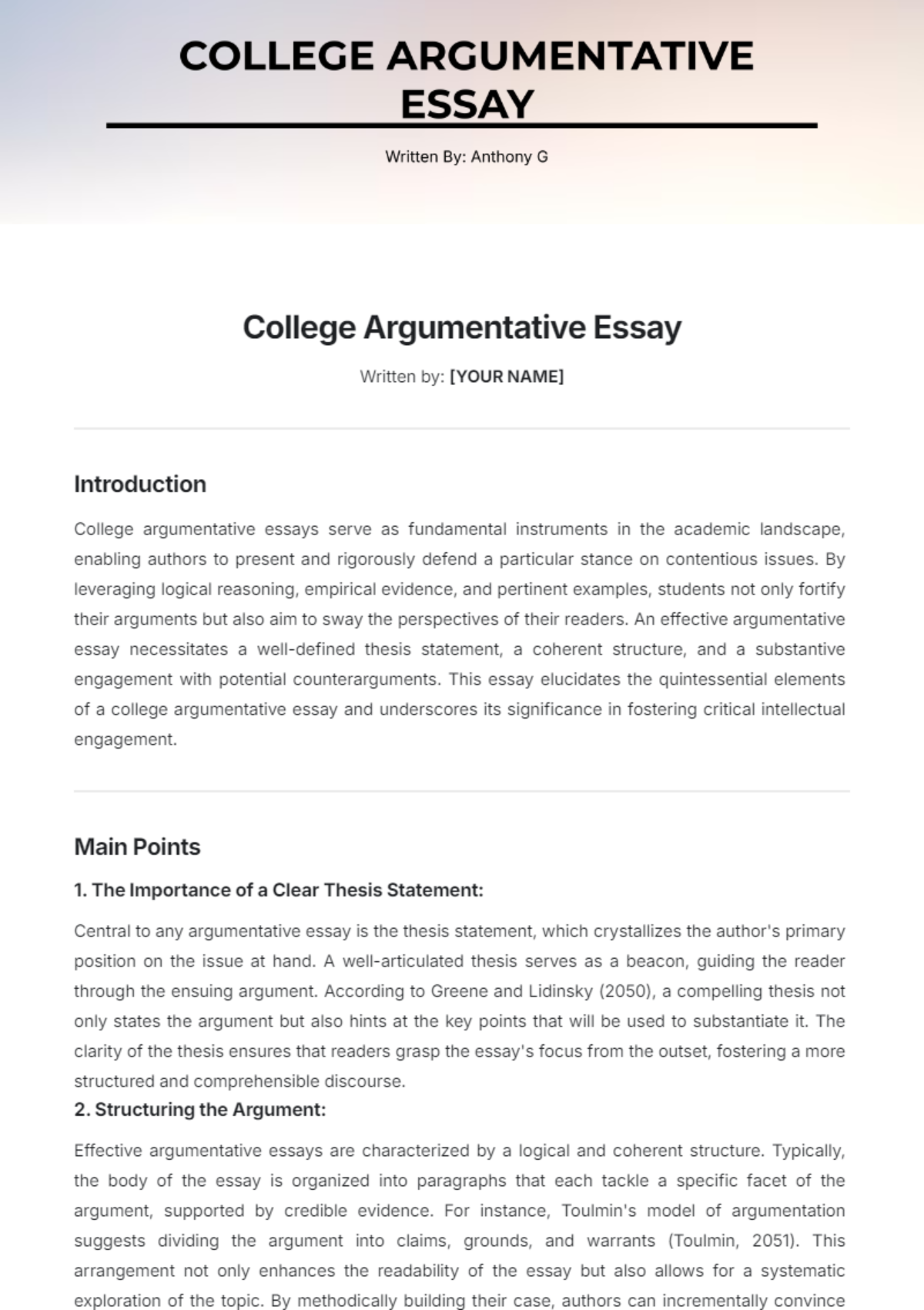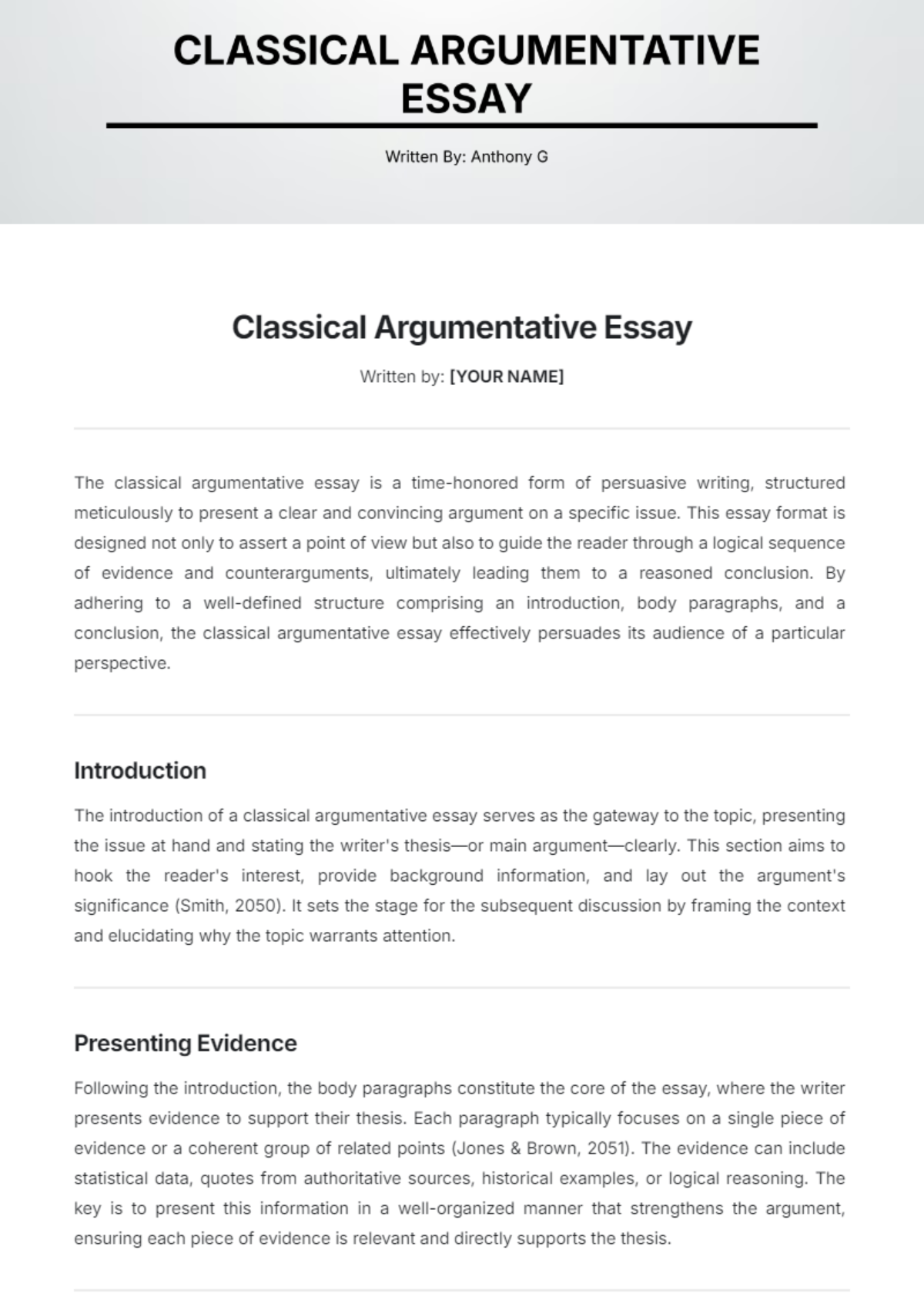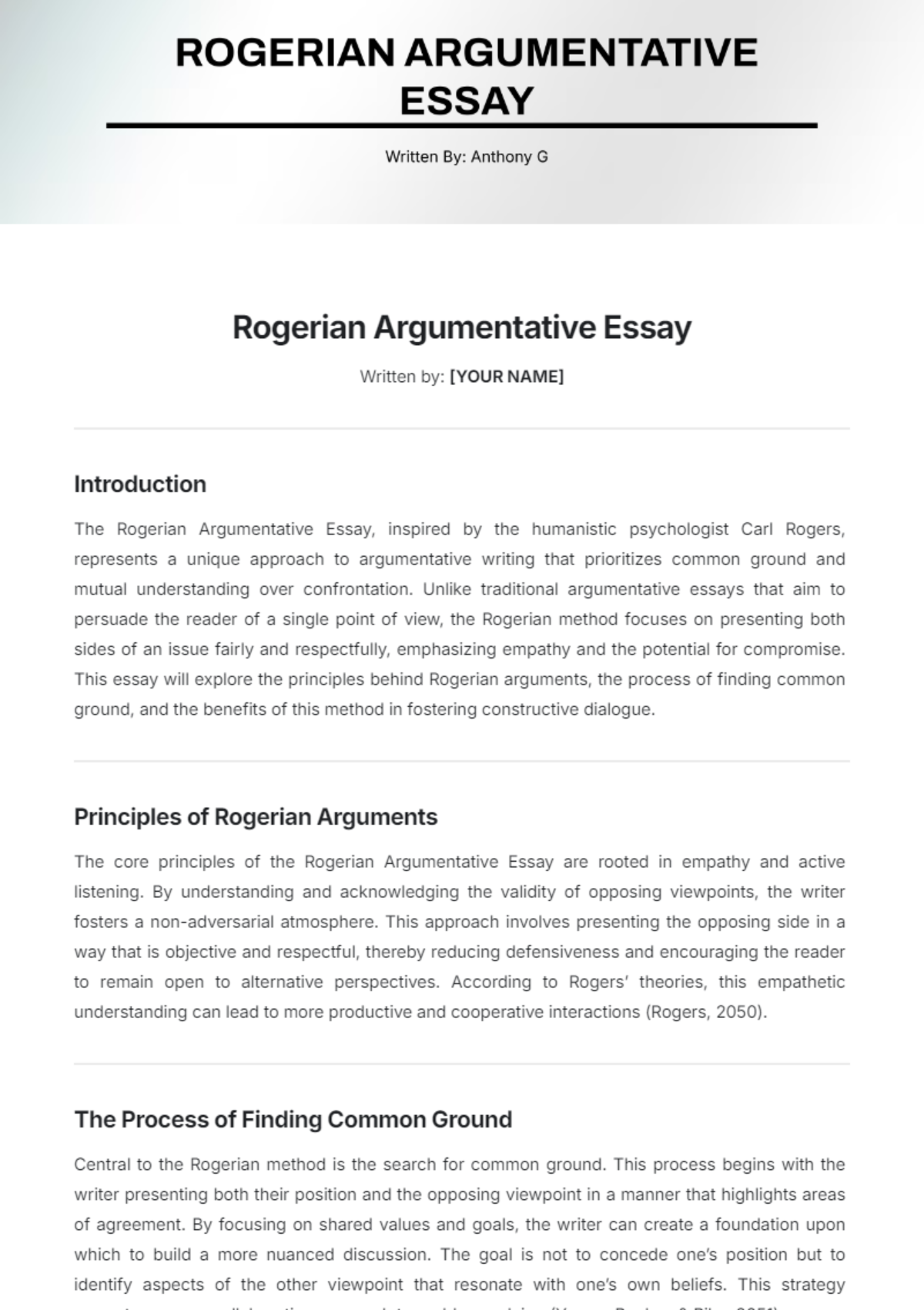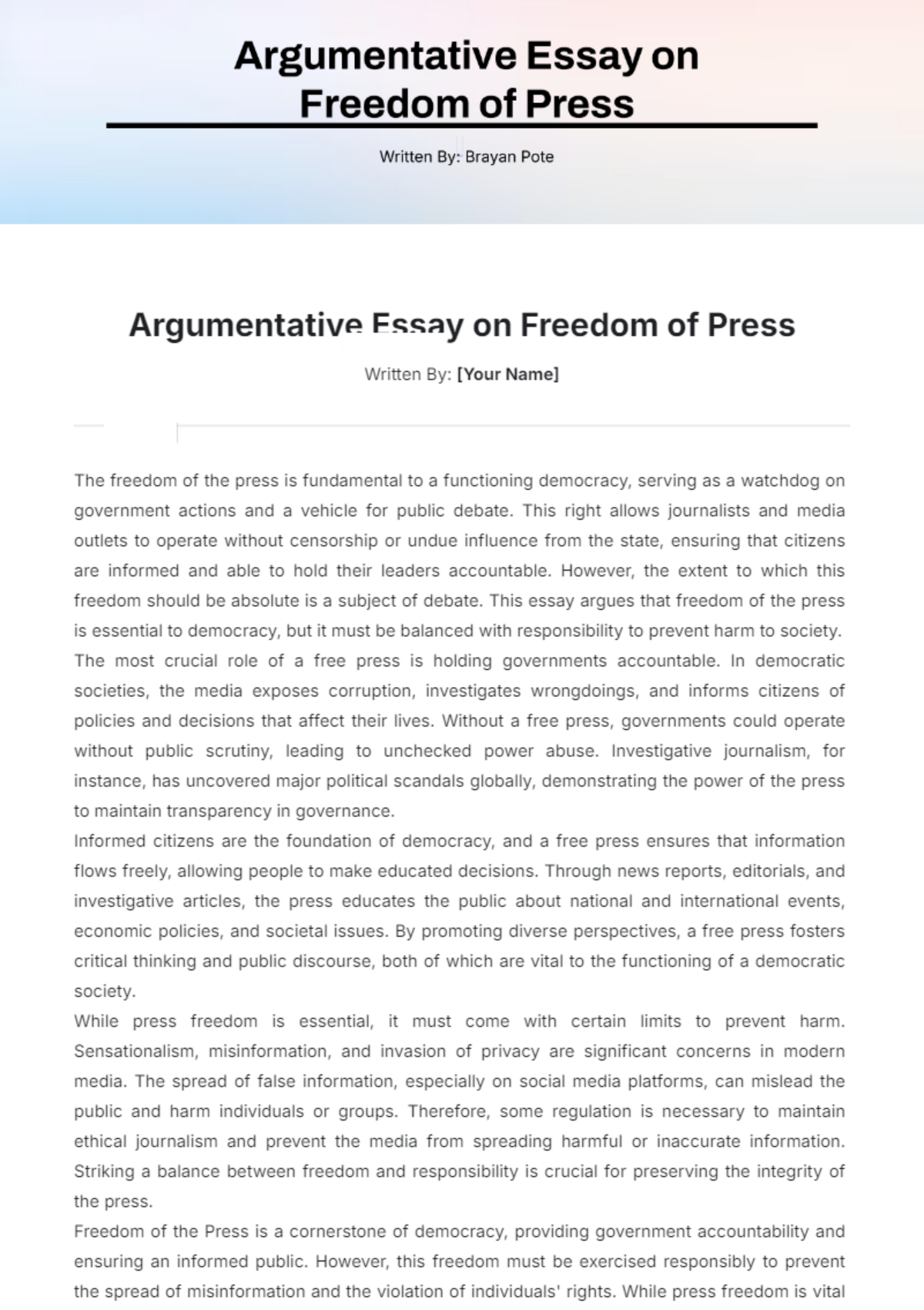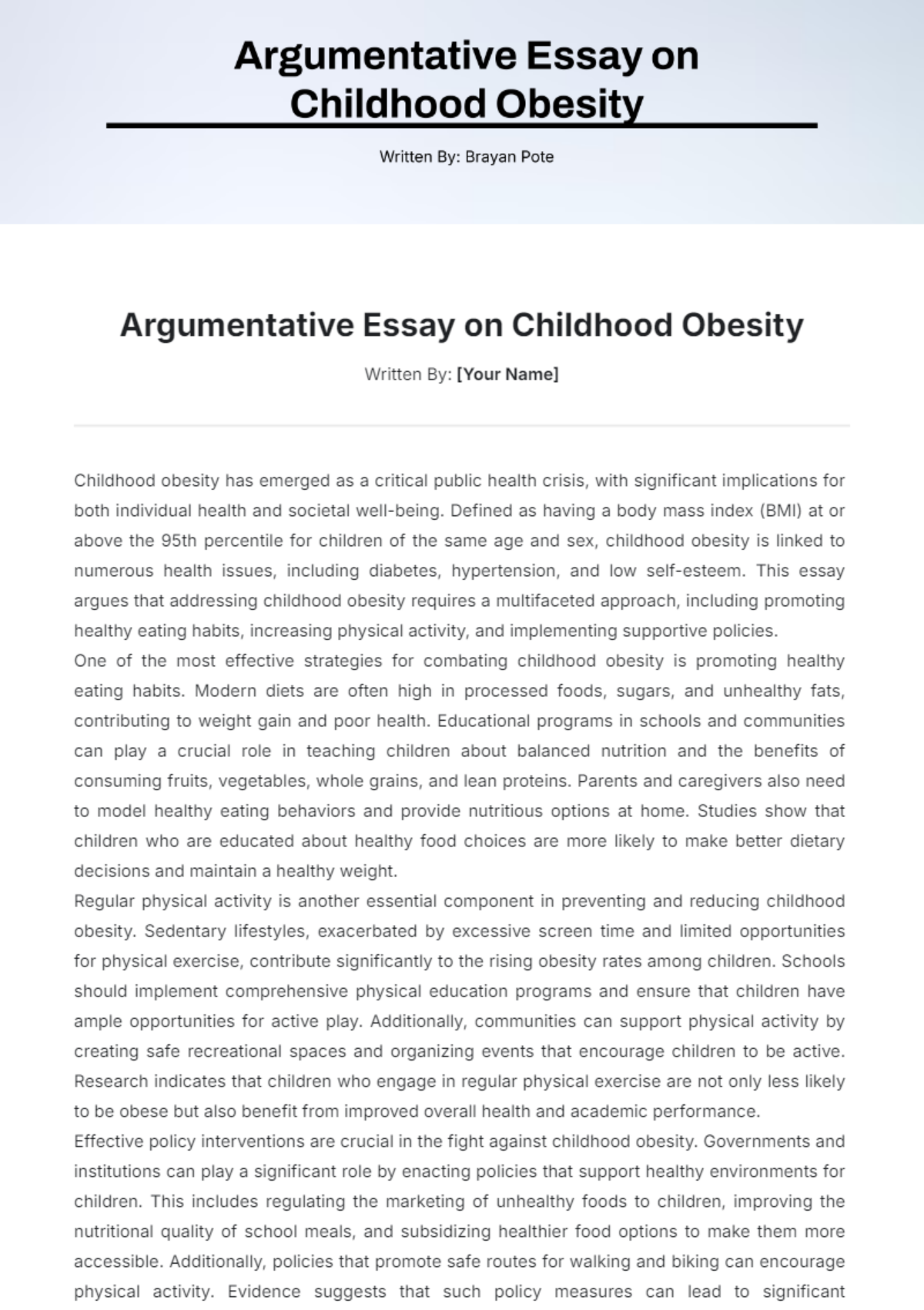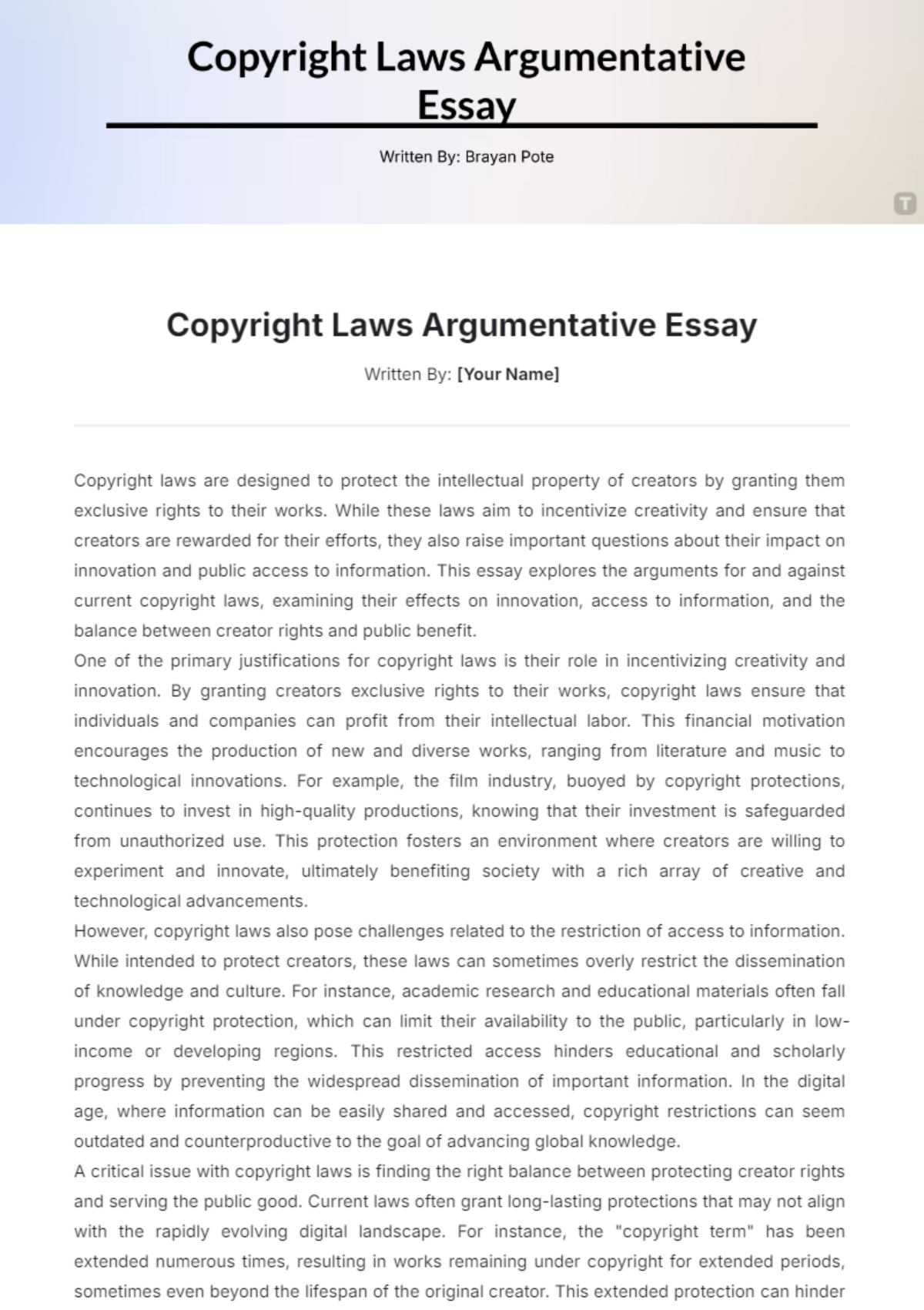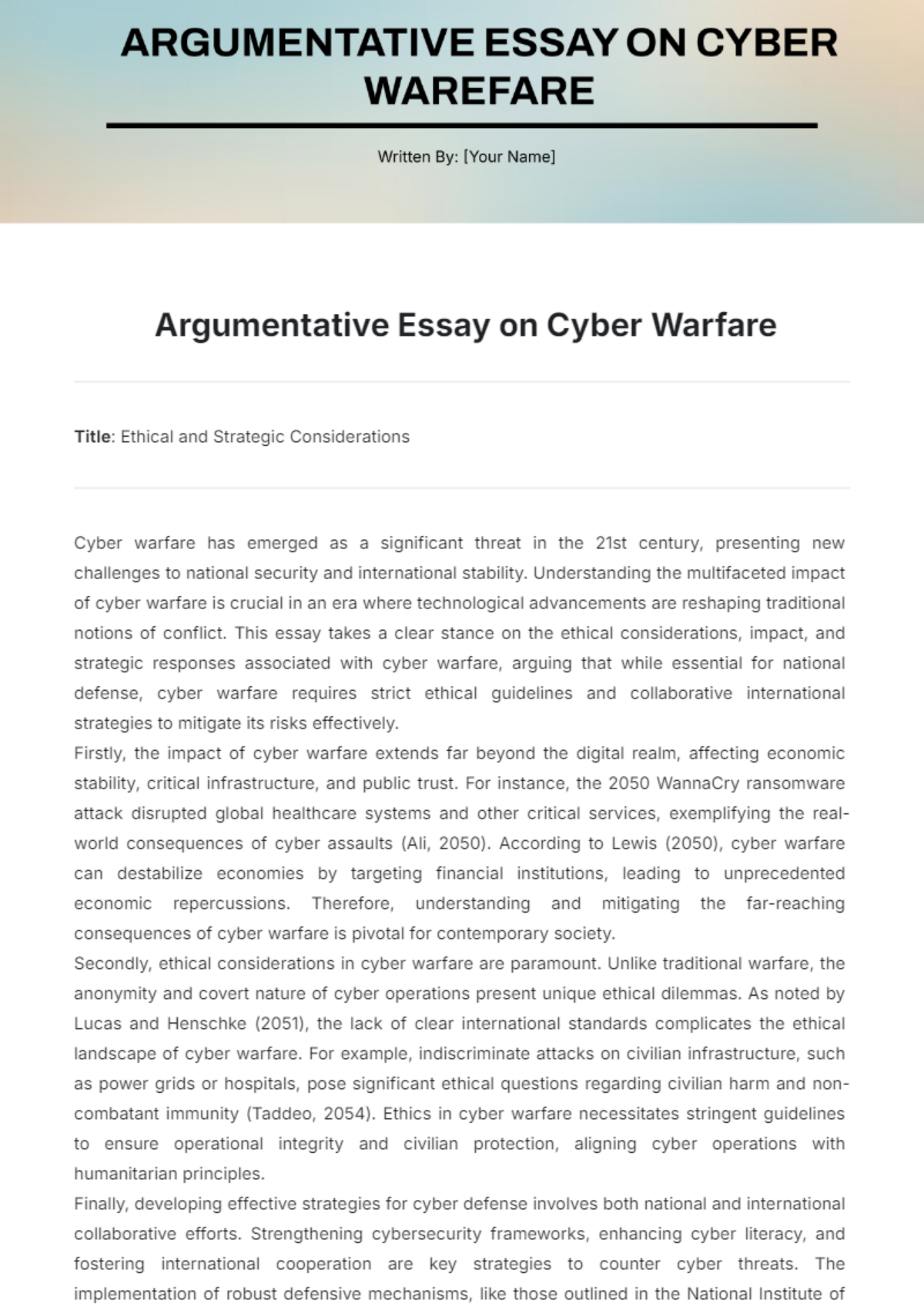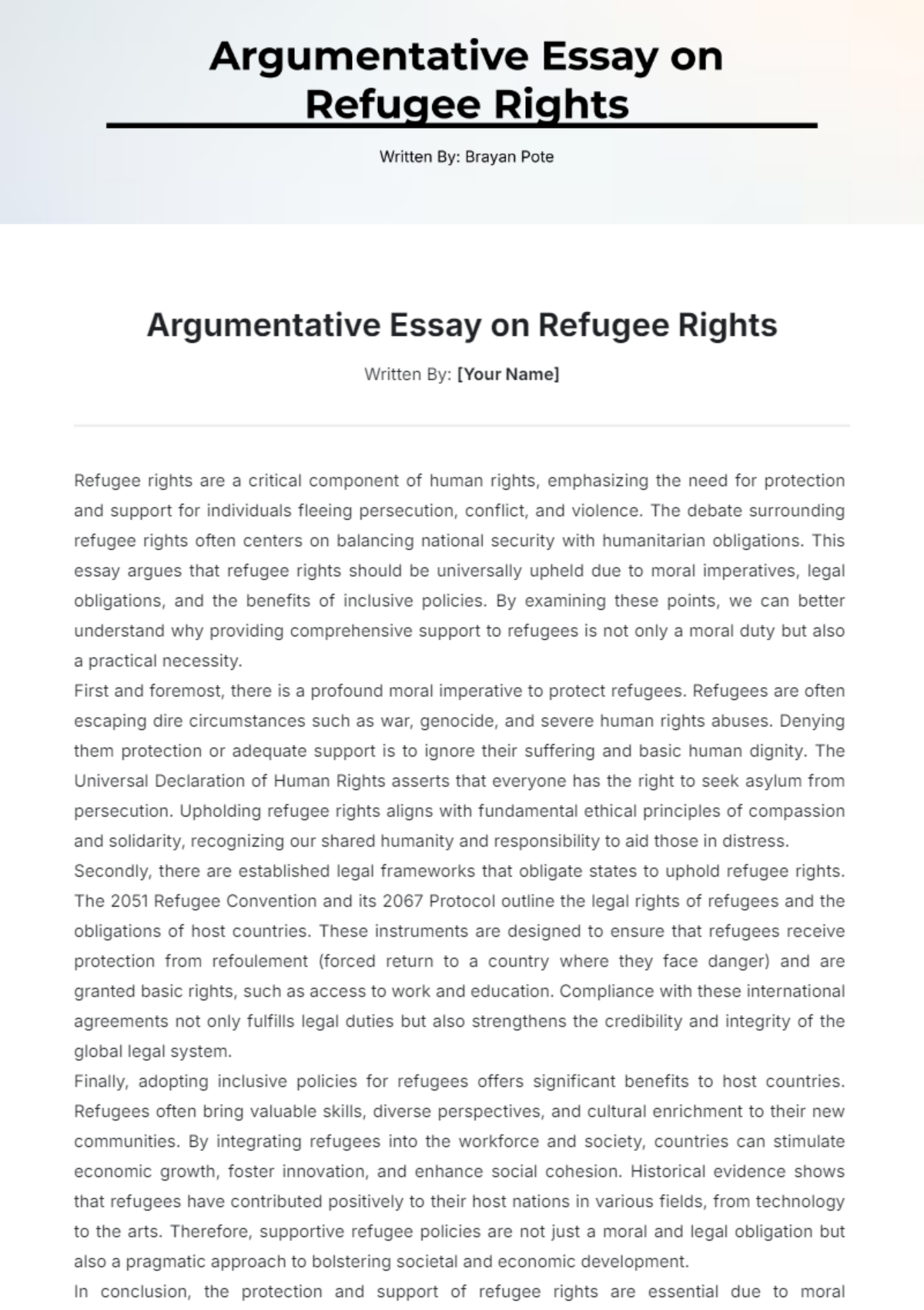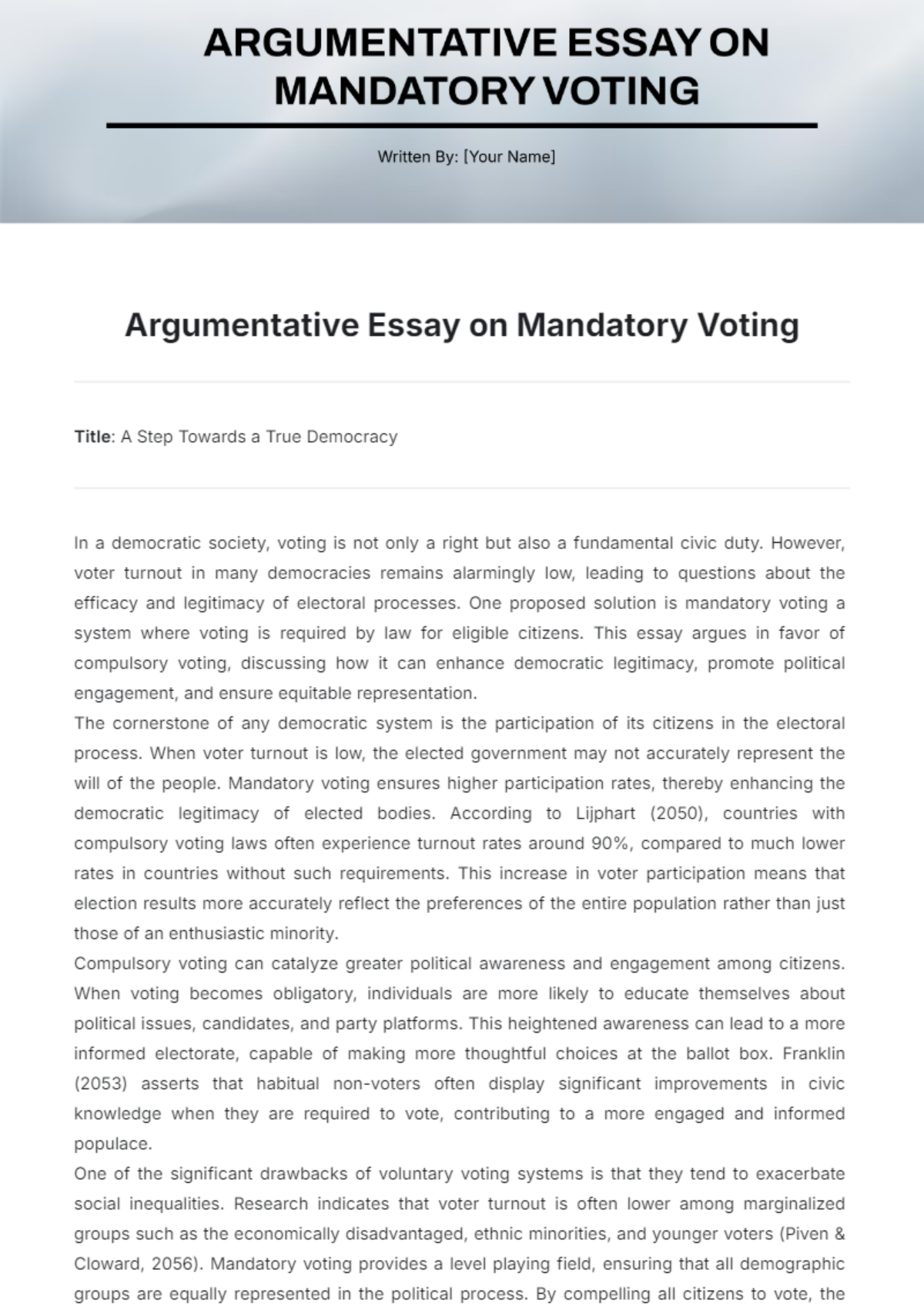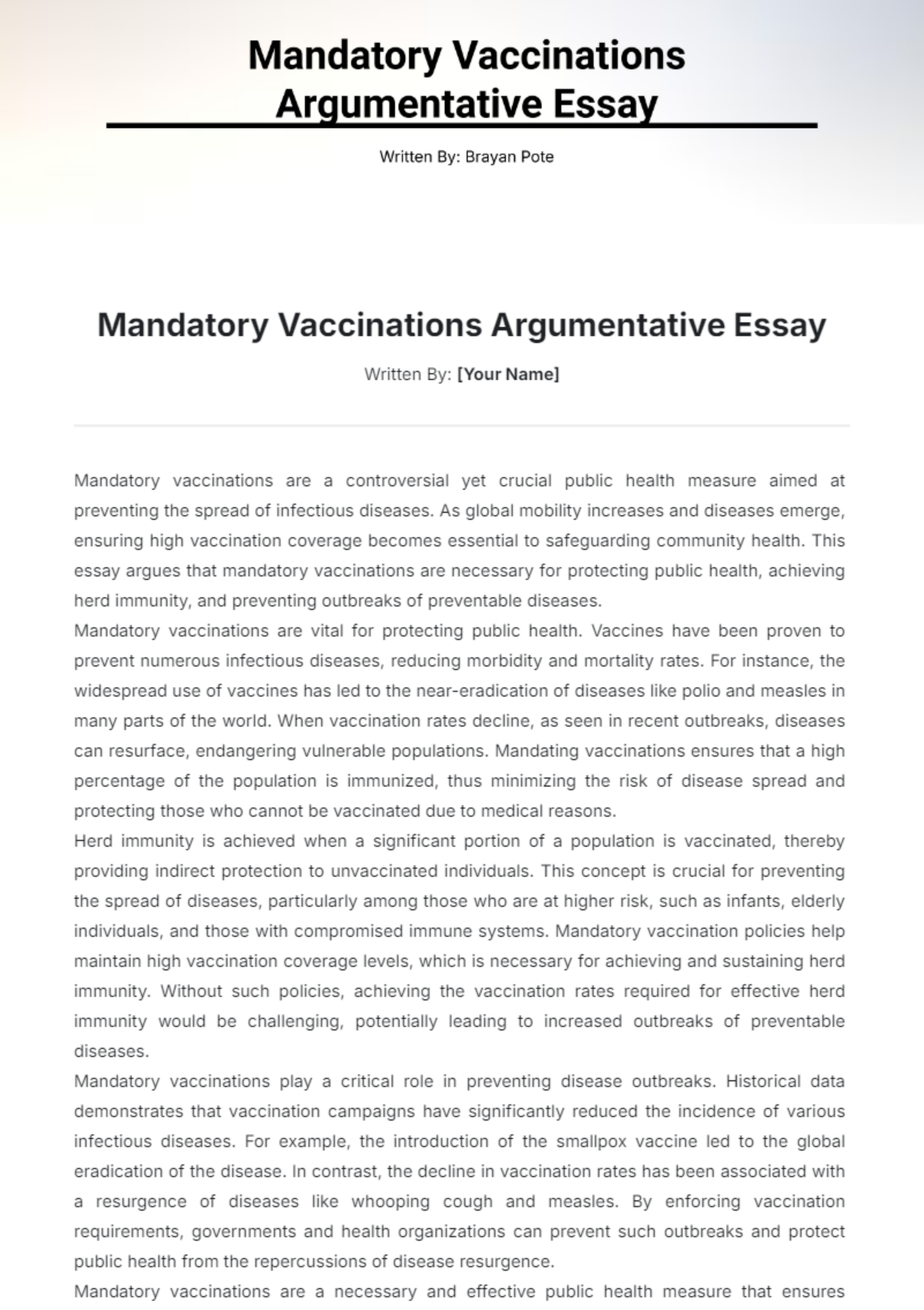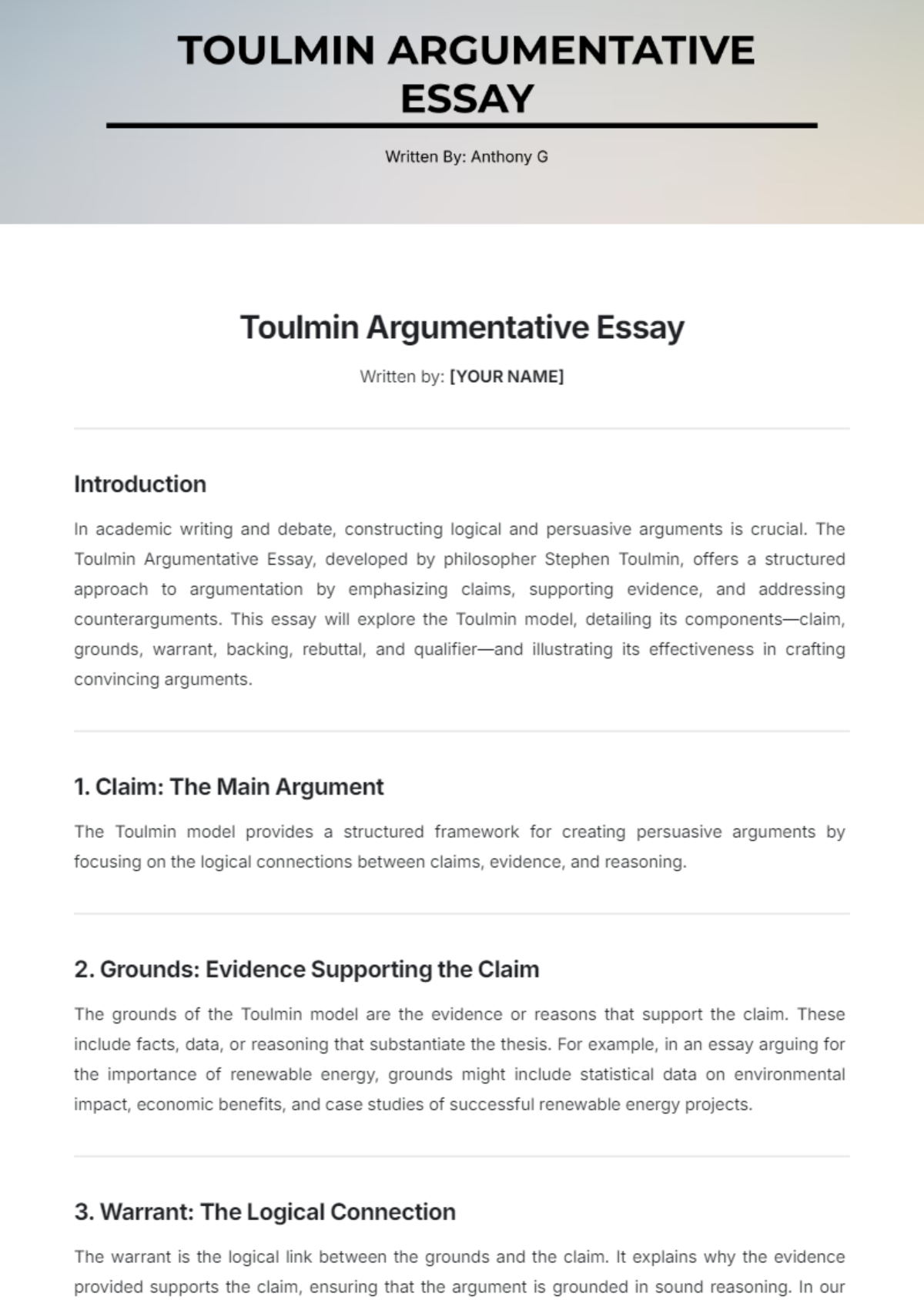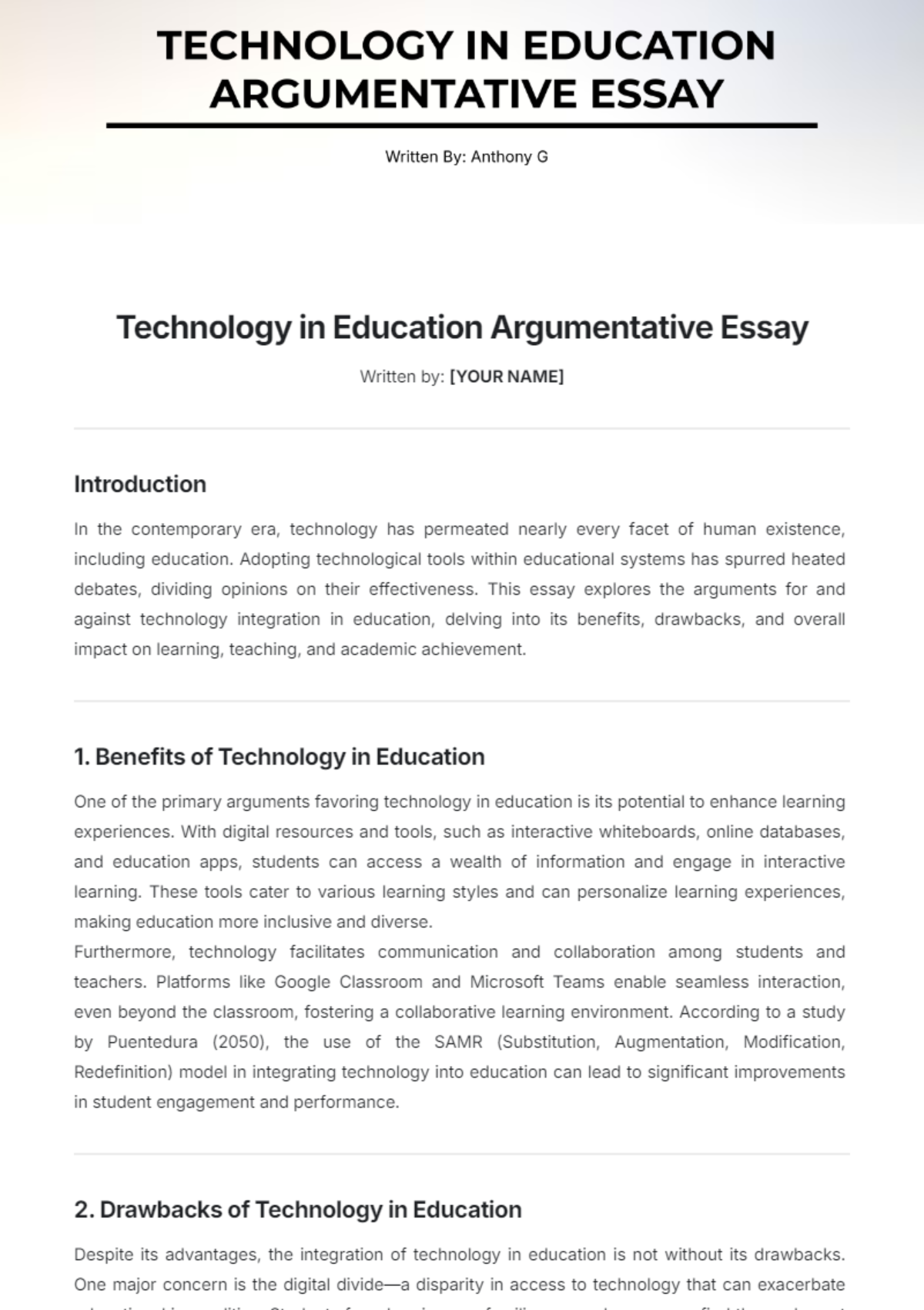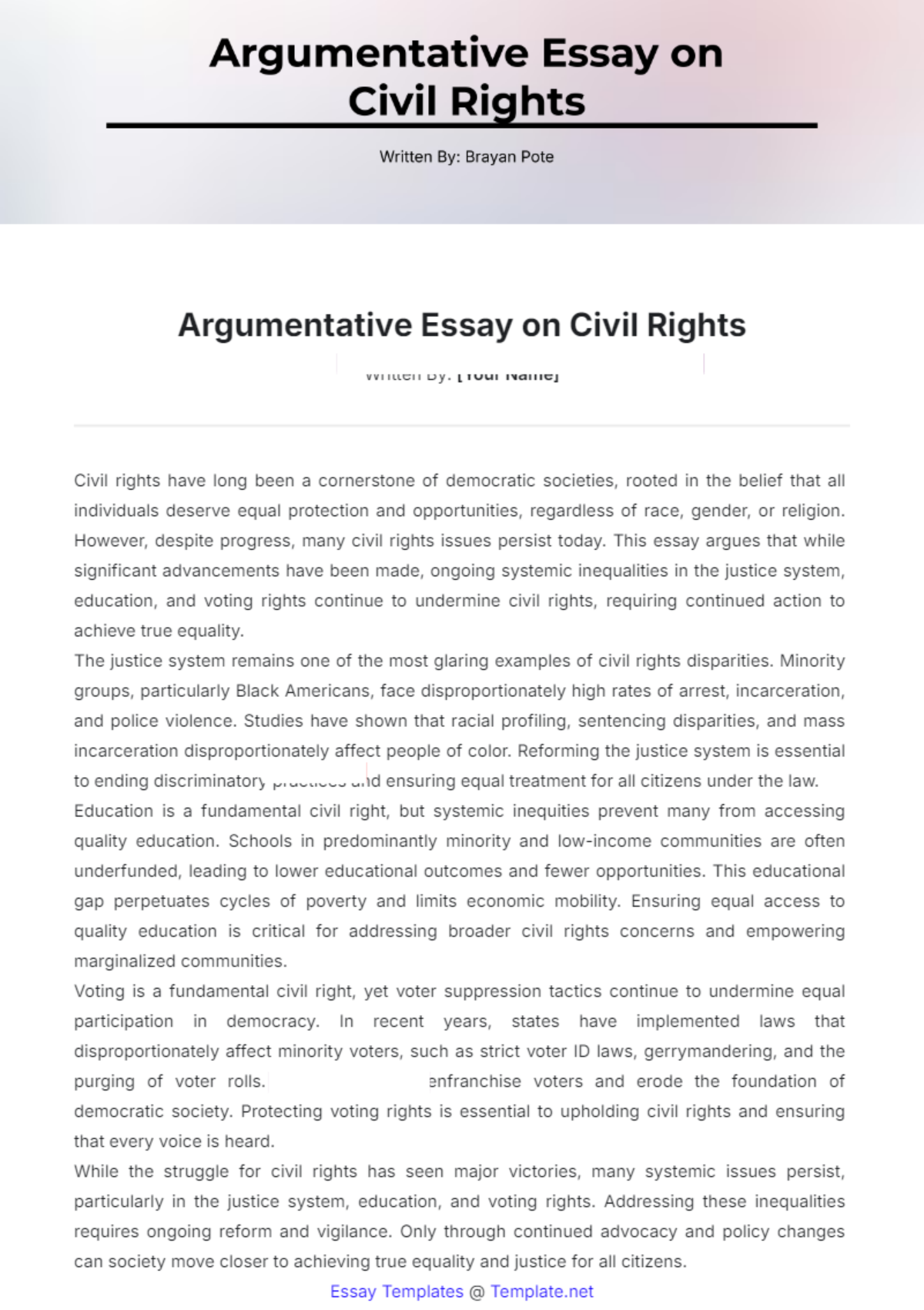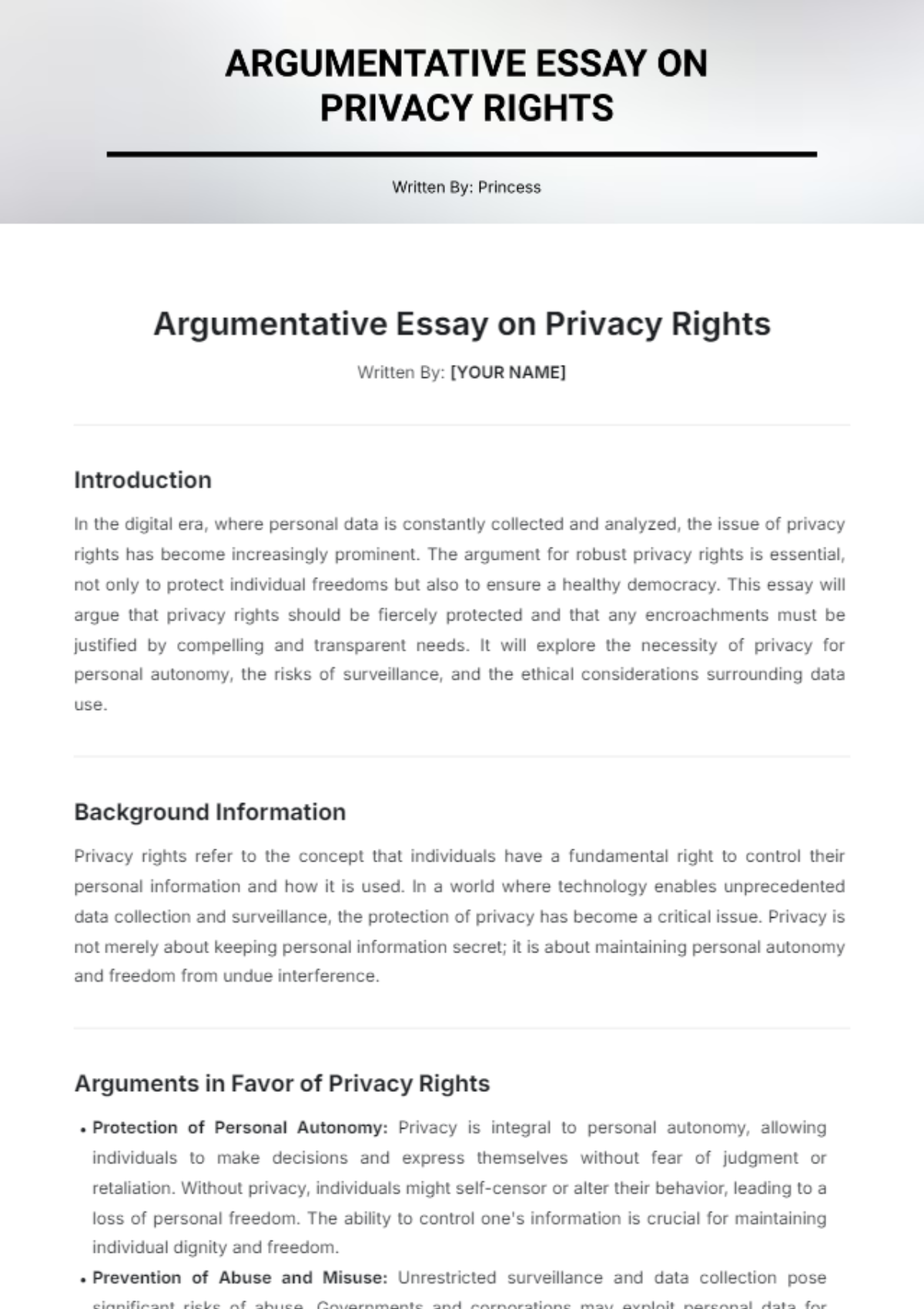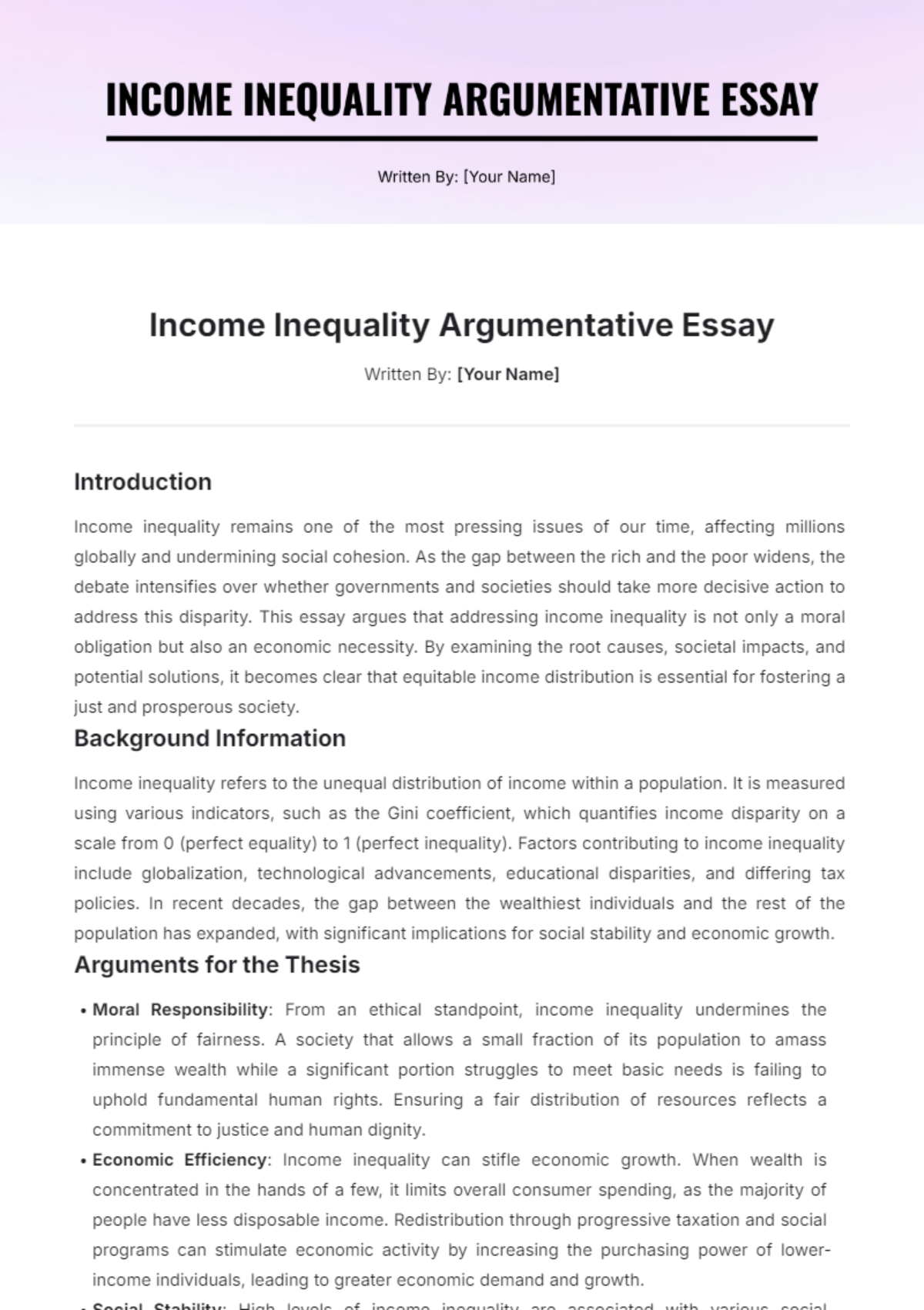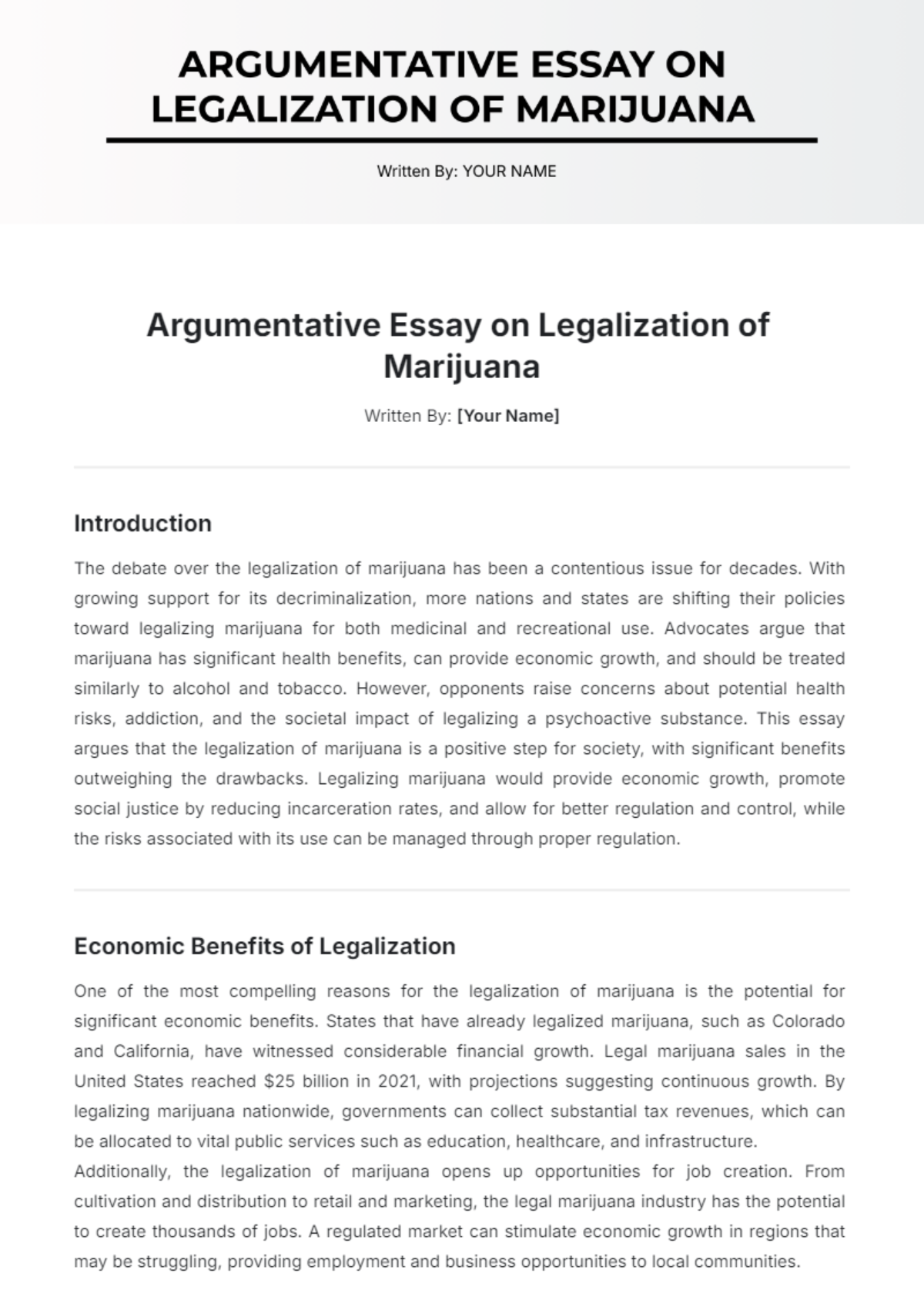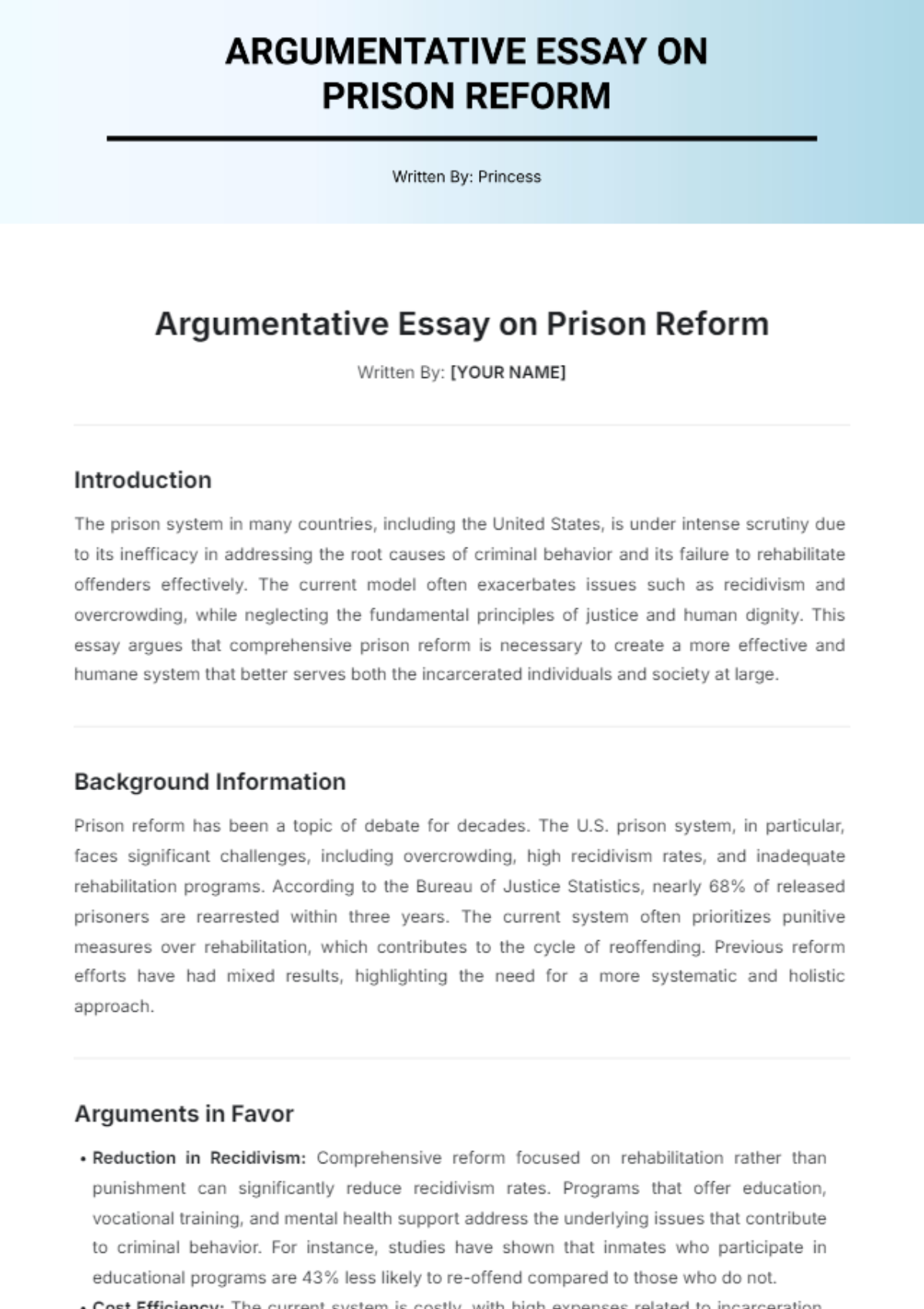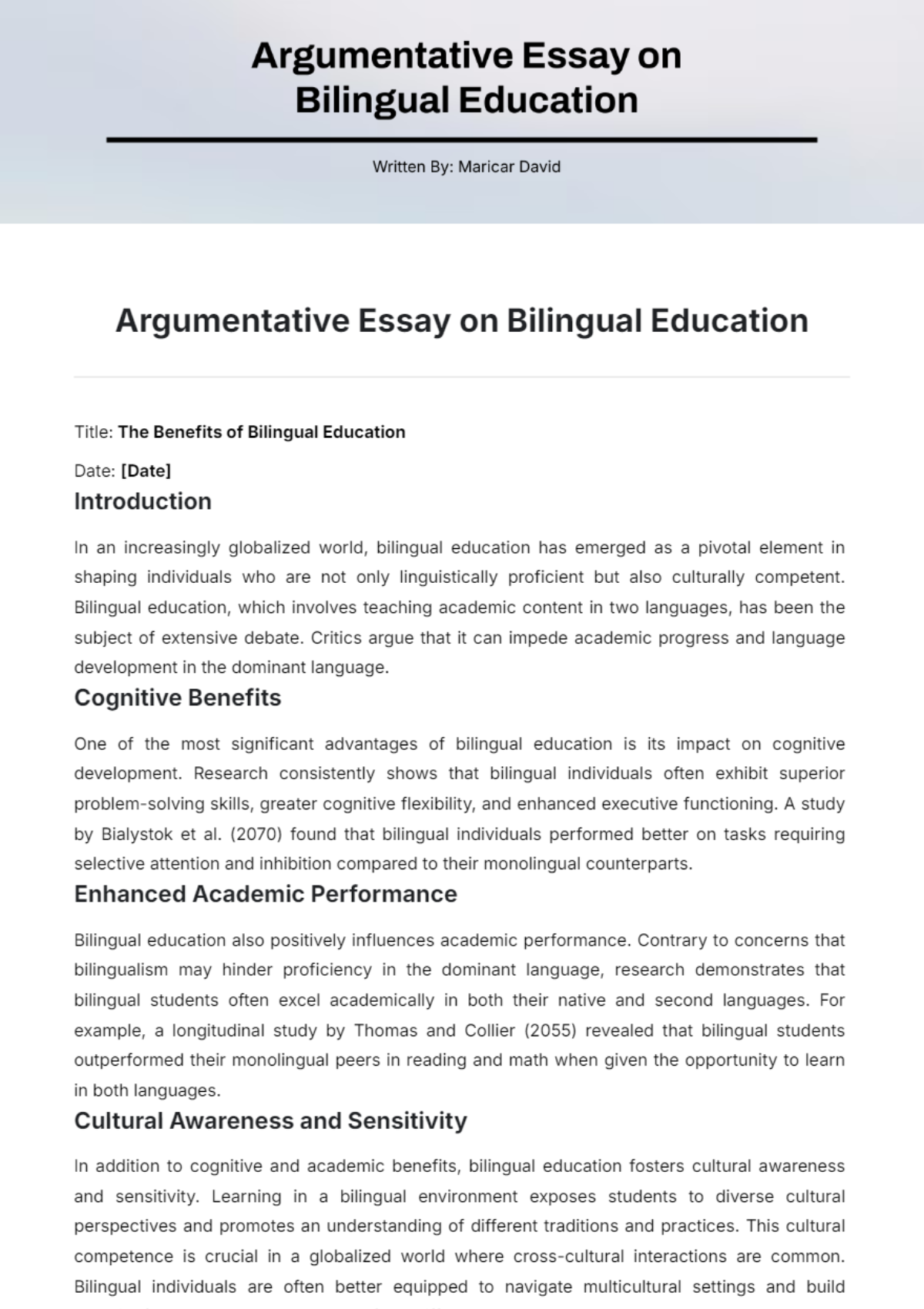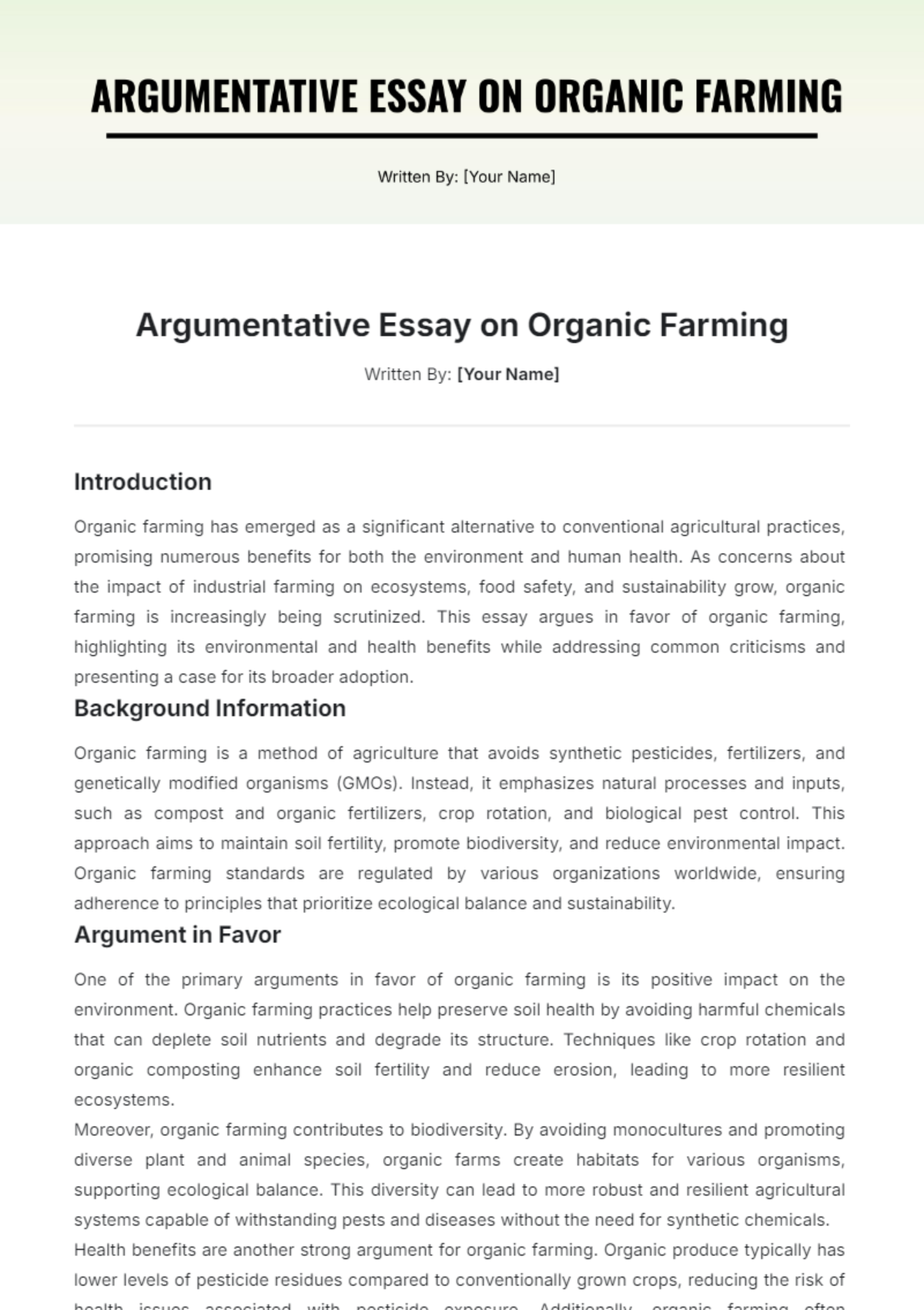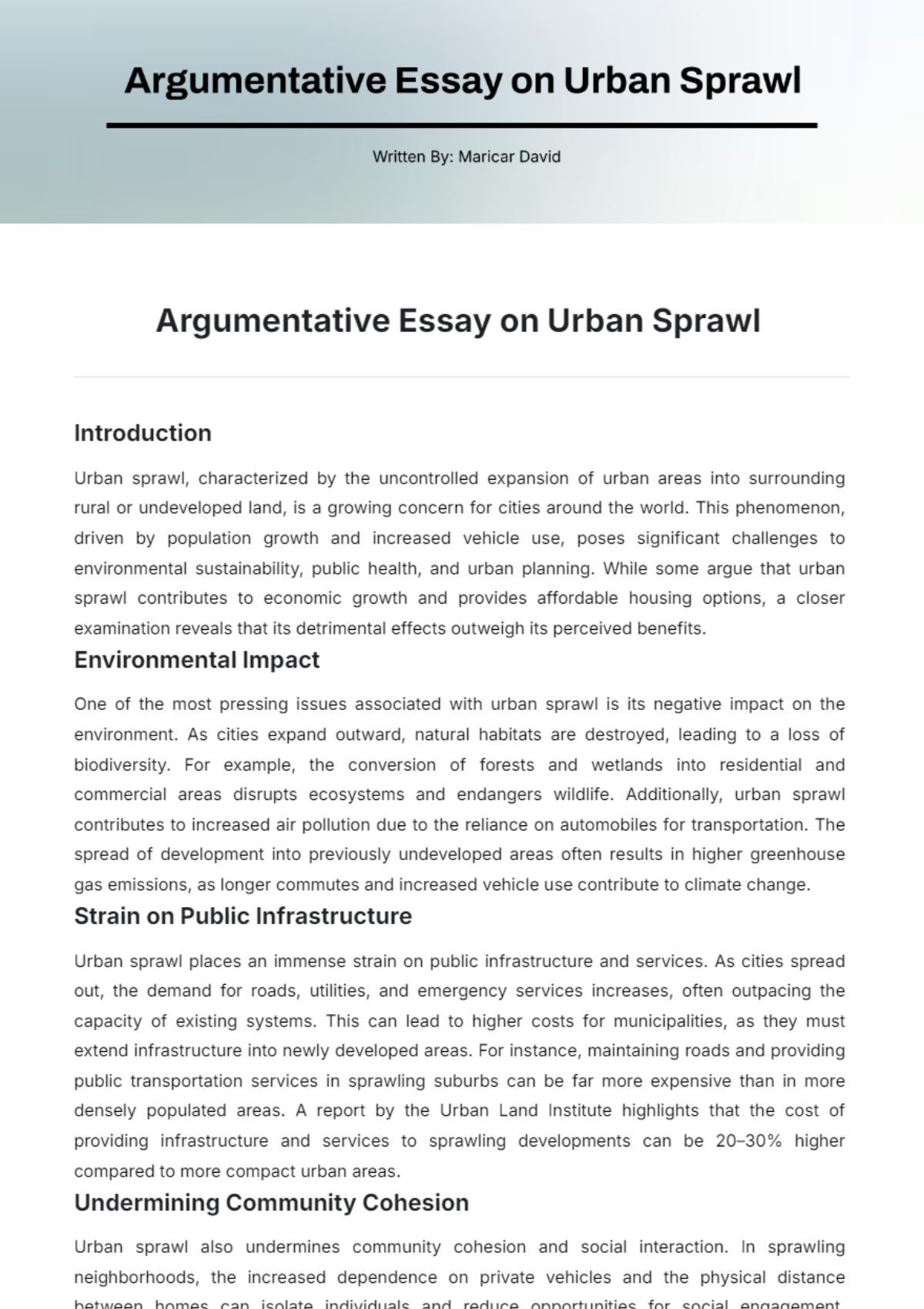Rogerian Argumentative Essay
Written by: [YOUR NAME]
Introduction
The Rogerian Argumentative Essay, inspired by the humanistic psychologist Carl Rogers, represents a unique approach to argumentative writing that prioritizes common ground and mutual understanding over confrontation. Unlike traditional argumentative essays that aim to persuade the reader of a single point of view, the Rogerian method focuses on presenting both sides of an issue fairly and respectfully, emphasizing empathy and the potential for compromise. This essay will explore the principles behind Rogerian arguments, the process of finding common ground, and the benefits of this method in fostering constructive dialogue.
Principles of Rogerian Arguments
The core principles of the Rogerian Argumentative Essay are rooted in empathy and active listening. By understanding and acknowledging the validity of opposing viewpoints, the writer fosters a non-adversarial atmosphere. This approach involves presenting the opposing side in a way that is objective and respectful, thereby reducing defensiveness and encouraging the reader to remain open to alternative perspectives. According to Rogers’ theories, this empathetic understanding can lead to more productive and cooperative interactions (Rogers, 2050).
The Process of Finding Common Ground
Central to the Rogerian method is the search for common ground. This process begins with the writer presenting both their position and the opposing viewpoint in a manner that highlights areas of agreement. By focusing on shared values and goals, the writer can create a foundation upon which to build a more nuanced discussion. The goal is not to concede one’s position but to identify aspects of the other viewpoint that resonate with one’s own beliefs. This strategy promotes a more collaborative approach to problem-solving (Young, Becker, & Pike, 2051).
The Benefits of Constructive Dialogue
One of the most significant benefits of the Rogerian approach is its potential to transform contentious debates into constructive dialogues. By prioritizing mutual respect and understanding, this method reduces hostility and invites cooperation. In educational settings, Rogerian arguments can teach students critical thinking and empathy, essential skills for navigating an increasingly polarized world. Additionally, this approach can be particularly effective in addressing complex societal issues where multiple perspectives must be considered for comprehensive solutions (Lunsford & Ruszkiewicz, 2050).
Conclusion
In conclusion, the Rogerian Argumentative Essay offers a compelling alternative to traditional persuasive writing by emphasizing empathy, mutual understanding, and common ground. This approach not only fosters a more respectful and open dialogue but also encourages collaborative problem-solving. In a world increasingly divided by differing viewpoints, Rogerian arguments offer a path toward more constructive and harmonious interactions.
Bibliography
Rogers, C. R. (2050). Client-Centered Therapy: Its Current Practice, Implications, and Theory. Boston: Houghton Mifflin.
Young, R. E., Becker, A. L., & Pike, K. L. (2051). Rhetoric: Discovery and Change. New York: Harcourt, Brace & World.
Lunsford, A. A., & Ruszkiewicz, J. J. (2052). Everything's an Argument. Bedford/St. Martin's.
